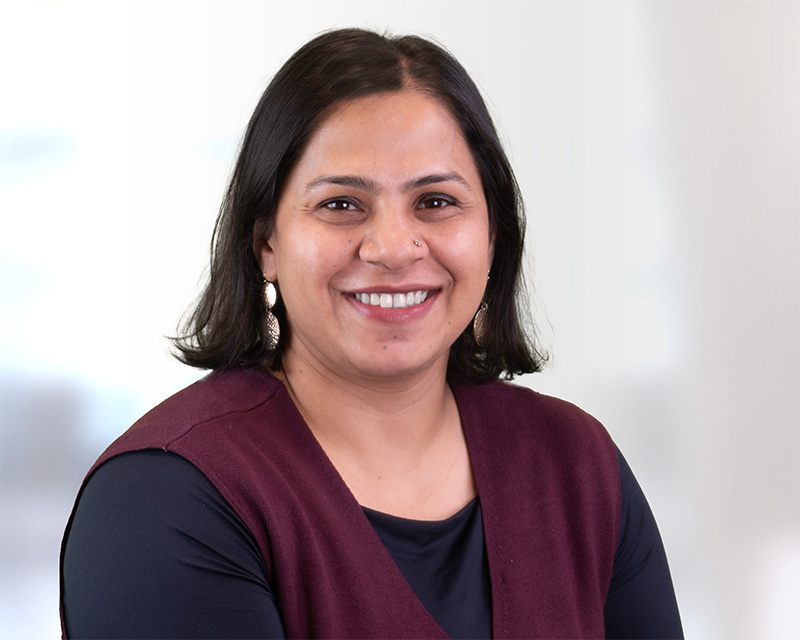Back
Related categories
Found 104 Results
-
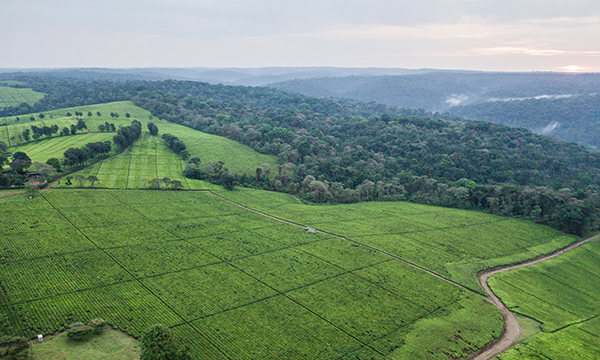
How can we improve global crop mapping? IFPRI’s Spatial Production Allocation Model (SPAM)
Co-organized by IFPRI and the CGIAR Initiative on Foresight
Accessibility to consistent, subnational, spatial information on crops globally will be hugely beneficial to researchers and policy makers. Researchers need this data to evaluate the benefits and costs of adopting new crop and livestock technologies, estimate the impact of climate change on agriculture calculate yield gaps, and analyze the historical evolution of farming systems. Policymakers, […]
-
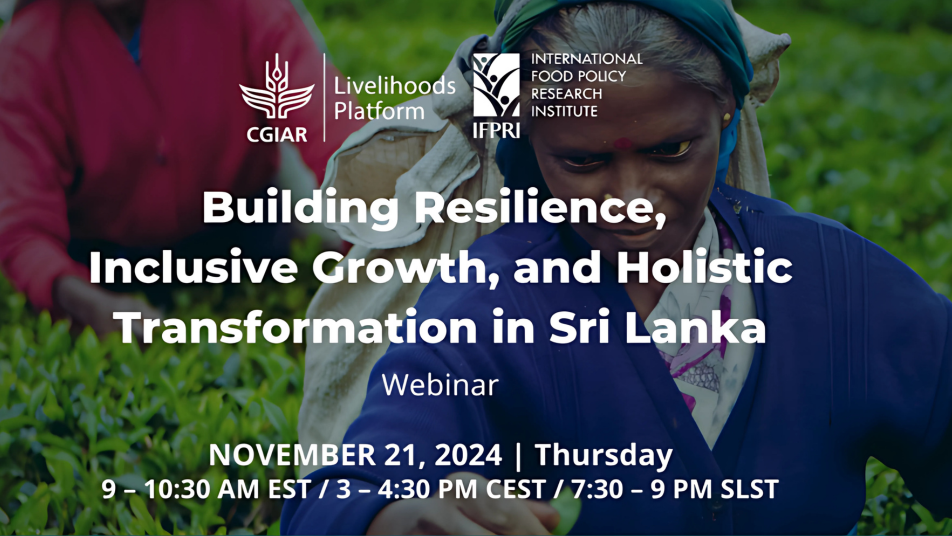
Building Resilience, Inclusive Growth, and Holistic Transformation in Sri Lanka
Organized by the CGIAR Livelihoods Platform and IFPRI
Sri Lanka has experienced slow progress in job creation, poverty reduction, and food insecurity, especially in rural areas. Economic challenges are further compounded by climate change risks and vulnerability to global shocks. At the same time, Sri Lanka has immense potential in agriculture and agro-processing, critical needs for infrastructure development, and a large scope for […]
-
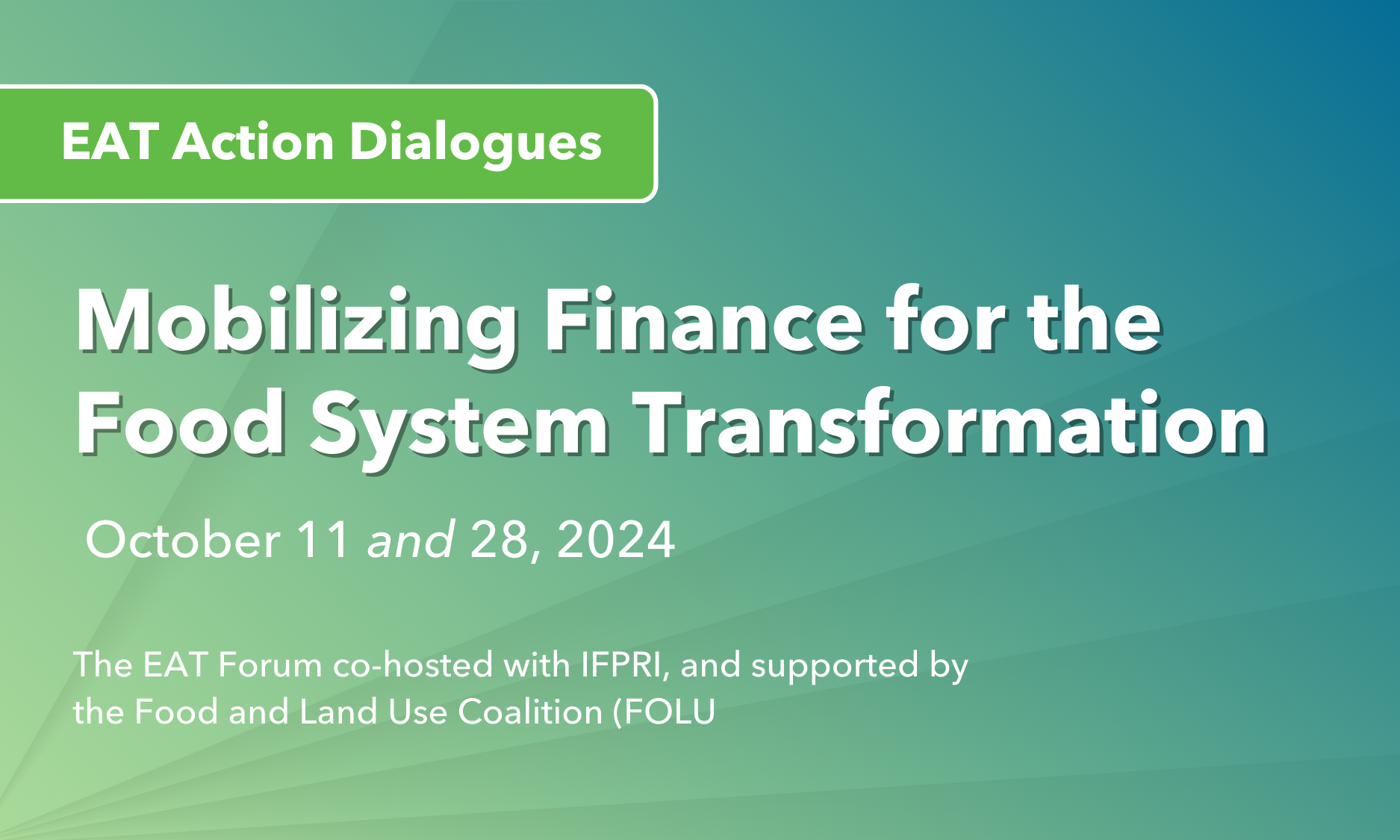
EAT Action Dialogues on “Mobilizing Finance for the Food System Transformation”
Co-hosted by the EAT Forum and IFPRI, supported by the Food and Land Use Coalition (FOLU)
This dialogue series is by invitation only. In preparation for the 2025 launch of the EAT-Lancet Commission 2.0, EAT is hosting a series of ‘EAT Action Dialogues’ to engage with stakeholders and co-create solutions for transforming food systems in line with the new targets and recommendations of the EAT-Lancet Commission 2.0. The first two Dialogues will […]
-
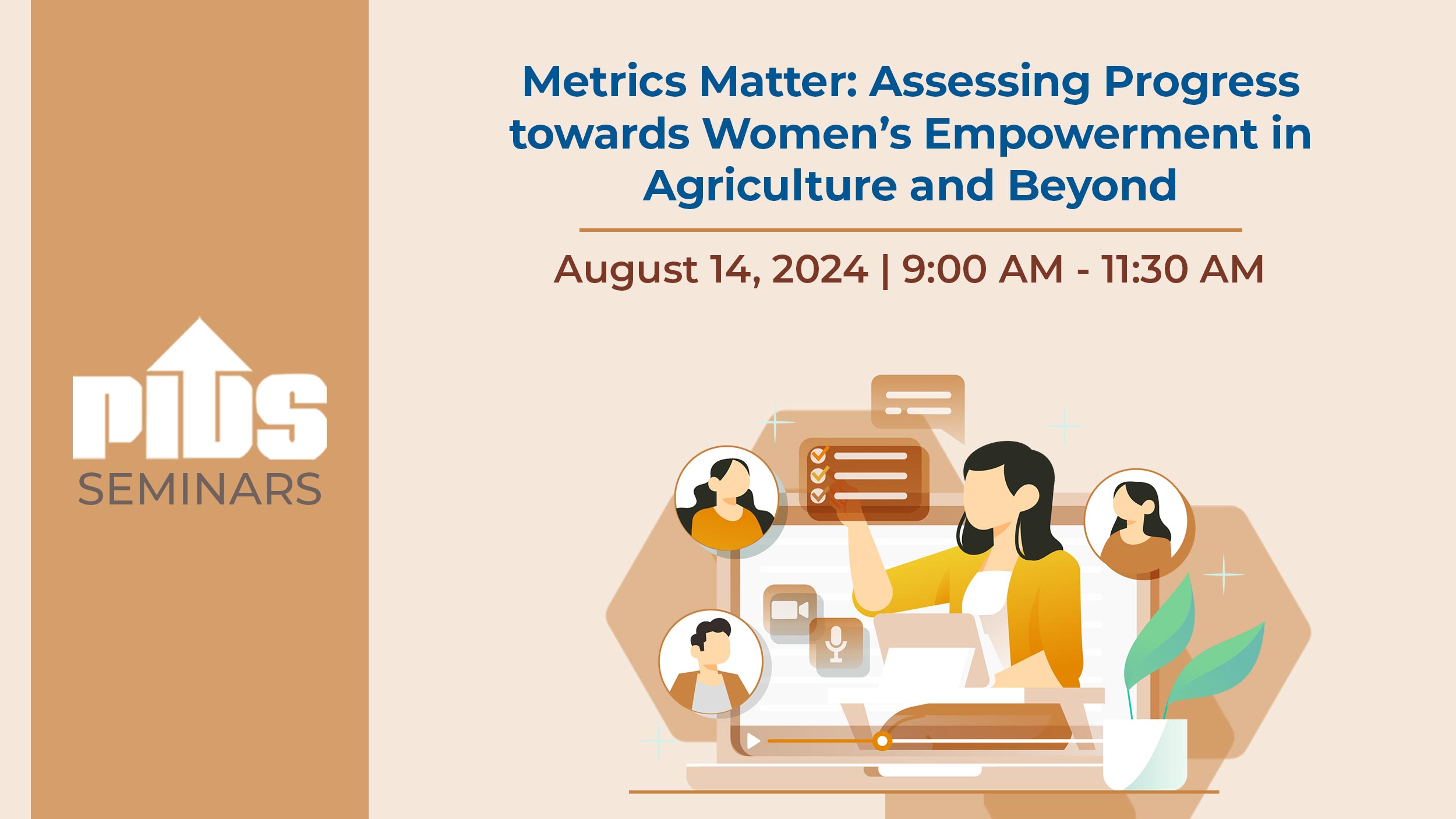
Metrics Matter: Assessing Progress towards Women’s Empowerment in Agriculture and Beyond
Co-organized by IFPRI and the Philippine Institute for Development Studies (PIDS)
The Philippine Institute for Development Studies (PIDS), in partnership with the International Food Policy Research Institute (IFPRI), will hold a public seminar featuring three studies on women empowerment on August 14, 2024, 9:00 AM to 11:30 AM (Asia/Manila) / August 13, 2024, 9:00 PM to 11:30 PM (US/Eastern) at the PIDS Conference Hall and via Zoom. […]
-
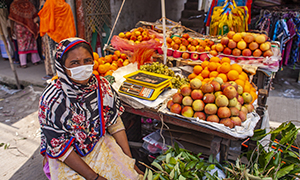
How should governments respond to crises? Rapid response using RIAPA modeling system
Co-organized by IFPRI and the CGIAR Initiative on Foresight
IFPRI’s foresight modeling systems cover food, land, and water systems across the world’s poorest and most food insecure geographies. Thanks to longstanding investments in these systems, IFPRI is uniquely positioned to provide rapid analysis of the impacts of global or domestic crises on agrifood systems, poverty, and food security at global, regional, national, or subnational […]
-
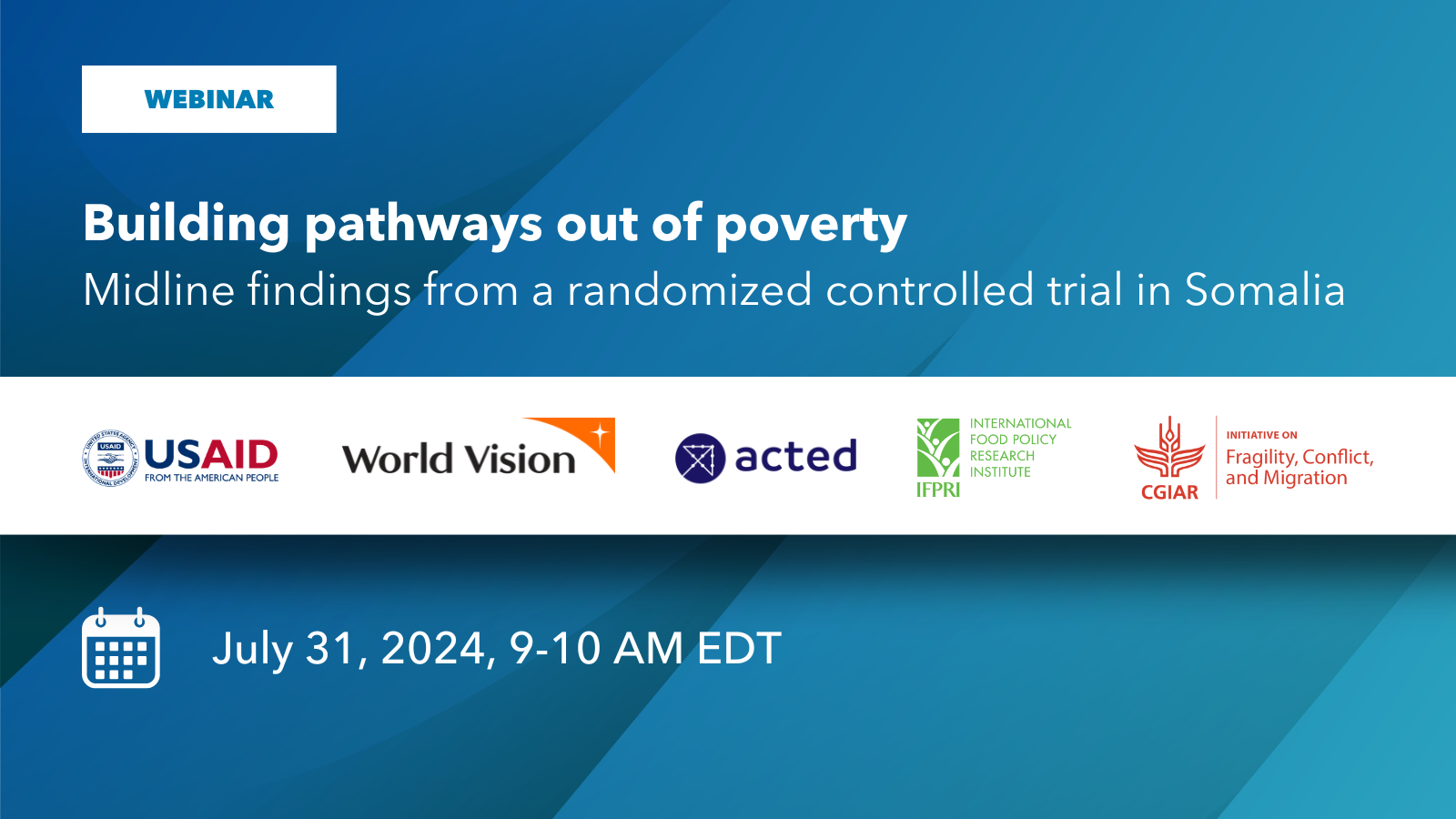
Building pathways out of poverty: Midline findings from a randomized controlled trial
Organized by IFPRI
This webinar will provide evidence around the effects of the Ultra Poor Graduation program implemented in Baidoa, Somalia by World Vision and funded by the U.S. Agency for International Development (USAID)’s Bureau for Humanitarian Assistance (BHA). The project seeks to enable ultra-poor internally displaced households to graduate from extreme poverty and begin an upward trajectory […]
-
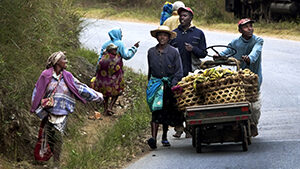
Tracking Global and National Agricultural Transformation
Co-organized by IFPRI, Agrilinks, and United States Agency for International Development (USAID)
Agricultural transformation involves the shift in production and workers from traditional agriculture to more productive activities, both within primary agriculture and across sectors within the broader agrifood system. This evolution enhances productivity and typically reduces poverty, raises incomes, and promotes healthier diets. However, not all countries are experiencing the same pace of agricultural transformation, and […]
-
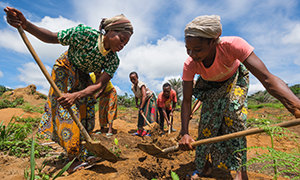
How does agricultural productivity growth affect agrifood system transformation goals? Exploring trade-offs using IMPACT
Co-organized by IFPRI and the CGIAR Initiative on Foresight
Agrifood systems are complex and changing, so it is critical to explore different potential futures to inform decisions today that can put the world on a better path for livelihoods, health, and the environment. In the coming decades, changes in population, income, and diets will put increasing pressure on agrifood systems to meet evolving food […]
-
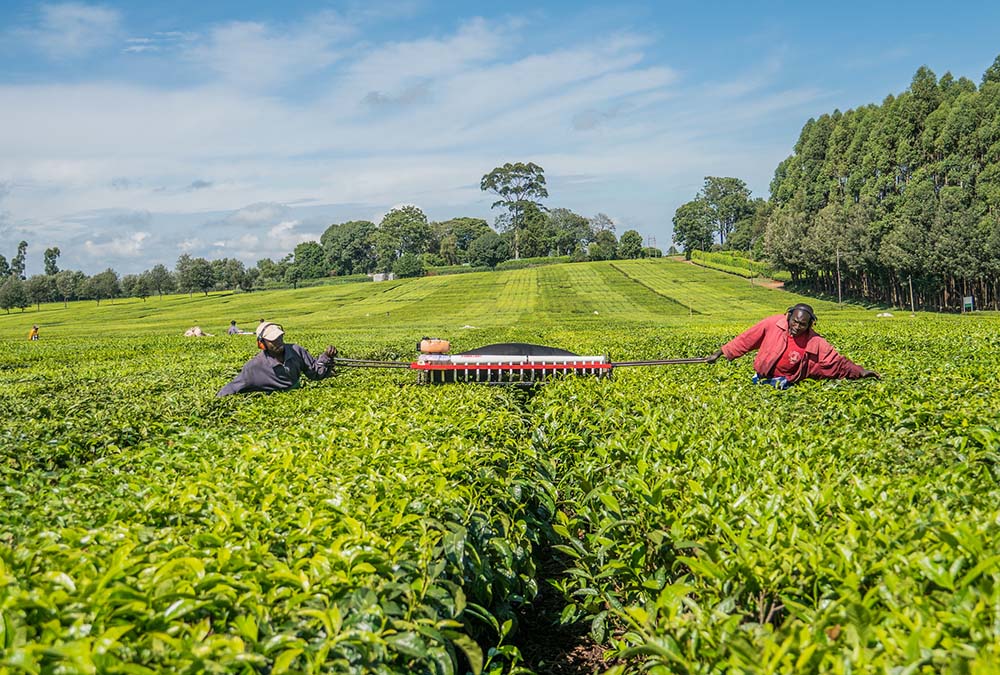
How do we prioritize agrifood system policies and investments? Insights from the RIAPA modeling system
Co-organized by IFPRI and the CGIAR Initiative on Foresight
Virtual Event: June 12, 2024 at 10:00am-11:00am EDT. In this webinar, we will demonstrate how RIAPA has been used to identify priority agricultural value chains that most effectively contribute to development outcomes.
-
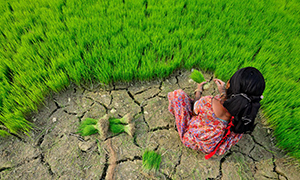
What does climate change mean for the future of agriculture? Insights from the IMPACT modeling system
Co-organized by IFPRI and the CGIAR Initiative on Foresight
Virtual Event: May 15, 2024 at 10:00am-11:00am EDT. This webinar, the first in the series, will focus on how IMPACT can be used to analyze how climate impacts on agrifood systems (and particularly crop productivity) may vary both across locations and over time in the coming decades, and how that can inform decisions about policies and investment today.
-
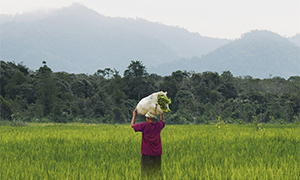
The Latest Innovations in Global Crop Mapping
Organized by the Land & Carbon Lab and IFPRI
Webinar: April 29, 2024 – 10:00 AM- 11:00 AM EDT. Join this webinar to hear from experts from IFPRI, the Bezos Earth Fund, Land & Carbon Lab and partners as they discuss the importance of transforming global food systems and the role that geospatial monitoring can play in this.
-
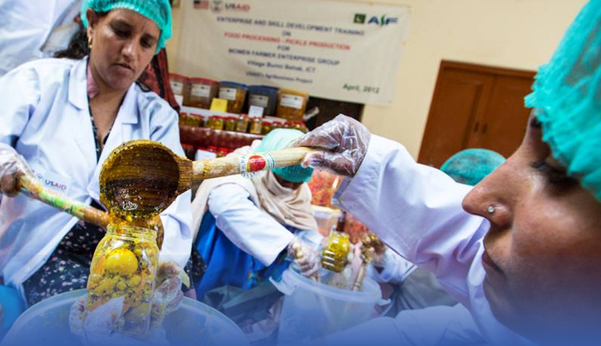
Drivers of Agrifood System Transformation: Lessons from Feed-the-Future Country Studies
Webinar: February 28, 2024 – 09:30 AM to 11:00 AM EST. IFPRI is participating in the “Drivers of Agrifood System Transformation: Lessons from Feed-the-Future Country Studies” webinar.
-
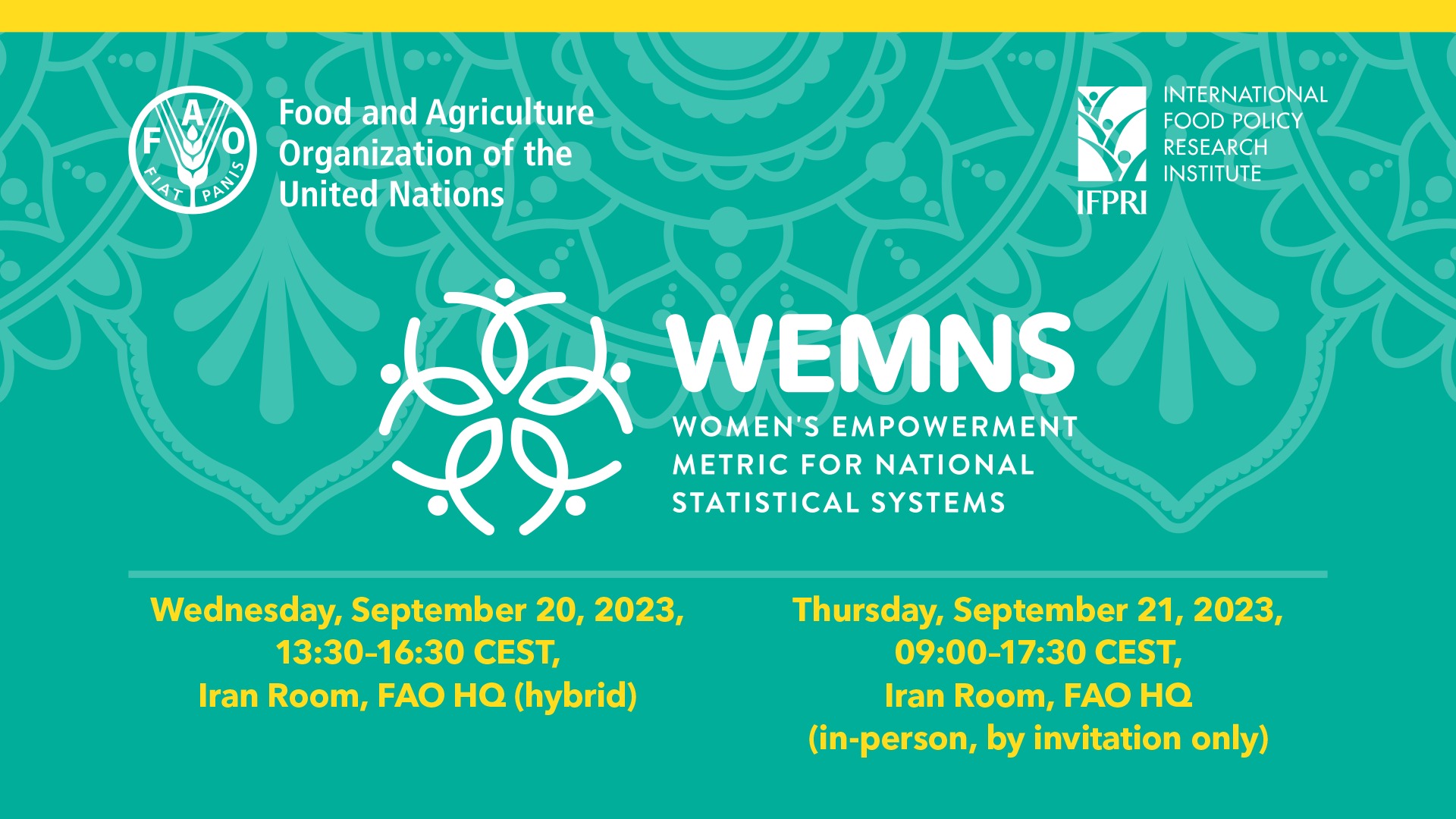
Women’s Empowerment Metric for National Statistical Systems (WEMNS)
Co-organized by the Food and Agriculture Organization of the United Nations (FAO) and IFPRI
Hybrid Event: September 20, 2023 – 1:30 PM to 4:30 PM CEST. This event will present the WEMNS tool and discuss its use to further advance women’s empowerment.
-
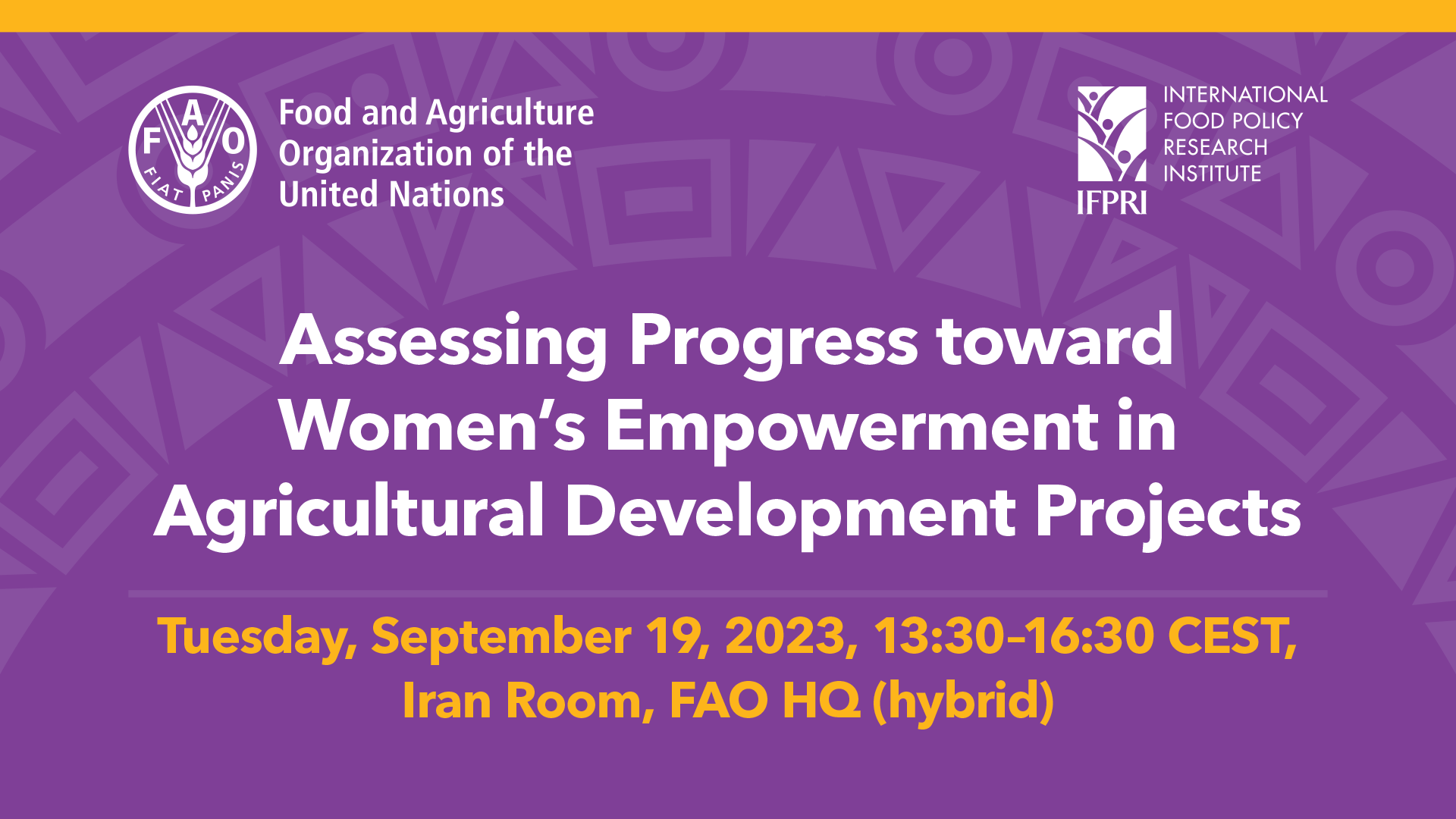
Assessing Progress toward Women’s Empowerment in Agricultural Development Projects
Co-organized by the Food and Agriculture Organization of the United Nations (FAO) and IFPRI
Hybrid Event: September 19, 2023 – 1:30 PM to 4:30 PM CEST. This event will provide a platform for implementers and partners to discuss approaches that have worked to empower women across projects and identify implications for future programming and scaling up.
-
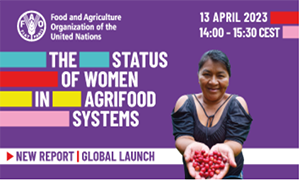
Launch of report: The Status of Women in Agrifood Systems
Organized by Food and Agriculture Organization (FAO)
Virtual Event: April 13, 2023 – 8:00 AM- 9:30 AM EDT. The new FAO report provides a comprehensive picture of the status of women not only in agriculture, but across agrifood systems. During the event, presenters will highlight the relevance of the report’s findings for policy and decision makers, development actors, the private sector, civil society and academia.
-
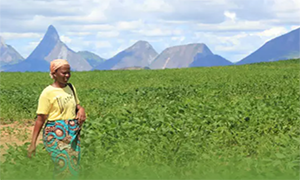
Into, Through and Beyond USAID Programs: Lessons from the Women’s Empowerment in Agriculture Index
Co-organized by United States Agency for International Development (USAID), the CGIAR GENDER Impact Platform, and IFPRI-Bangladesh
Virtual Event: March 29, 2023 – 9:00 AM- 10:15 AM EDT. This webinar will mark the launch of two briefs, one on the use cases of WEAI in USAID projects worldwide and the other on how WEAI has informed and supported the design of policies and programs in Bangladesh.
-
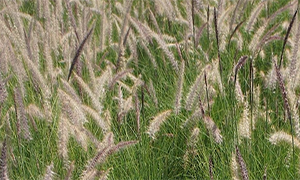
Addressing Food Security in Central Asia: The cases of Tajikistan and Turkmenistan
Central Asia Program (CAP)
Virtual Event: March 1, 2023 – 10:00 AM- 11:15 AM EST. During this event, renowned specialists will discuss the challenges to food security posed by the impacts of the covid-19 pandemic, Russia’s invasion of Ukraine, and climate change.
-
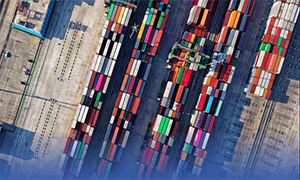
Impacts of Global Shocks on Poverty, Hunger, and Diets
Organized by Agrilinks
Virtual Event: February 9, 2023 – 9:00 AM- 10:00 AM EST. IFPRI’s Xinshen Diao and James Thurlow will present their latest round of country impact modeling in Agrilinks webinar “Impacts of Global Shocks on Poverty, Hunger, and Diets”.
-
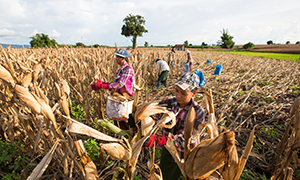
What Can the G-20 Meeting Do for the Recovery of Global Food Security?
A Special Policy Open Forum
Virtual Event: September 9, 2022 – 9:00 AM to 10:30 AM EDT. The USINDO and IFPRI, are partnering to present a Special Open Forum on “What Can the G-20 Meeting Do to Enhance Global Food Security?”
-
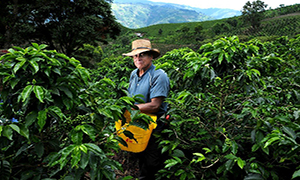
National Policies and Strategies for Food, Land and Water Systems Transformation (NPS)
One CGIAR initiative launch event
Virtual Event: May 17, 2022 – 9:00 AM to May 18, 2022 – 2:00 PM EAT. This event will introduce the NPS initiative and bring together key stakeholders to help plan a specific work program for Kenya in the next three years.
-

Transforming Global Food Systems After COVID-19
Global Development Distinguished Speaker Series
Virtual Event: April 11, 2022 – 11:45 AM to 1:00 PM EDT. This event will delve into the wide-ranging impacts of COVID-19, and offer lessons for transforming food systems.
-
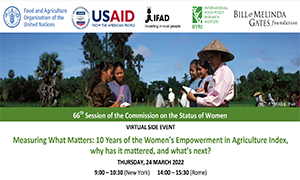
Measuring What Matters: 10 Years of the Women’s Empowerment in Agriculture Index, why has it mattered, and what’s next?
66th Session of the Commission on the Status of Women Side Event
Virtual Event: March 24, 2022 – 9:00 AM to 10:30 AM EDT. This side event will provide an opportunity to discuss country experiences in using the WEAI and reflect on its impact on measuring and tracking gender equity and equality.
-
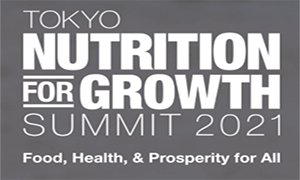
Side Event: How Japan’s know-how can help address food and nutrition challenges in the developing world
Tokyo Nutrition for Growth (N4G) Summit 2021
Virtual Event: Nov 30, 2021 – 06:00 AM to 07:30 AM EST. This event explores how Japan can lend its expertise to address food and nutrition challenges in the developing world.
-
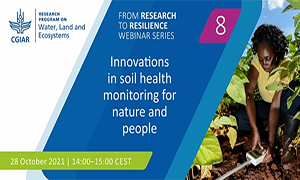
Innovations in soil health monitoring for nature and people
CGIAR Research Program on Water, Land and Ecosystems (WLE)
Virtual Event: OCT 28, 2021 – 08:00 AM to 9:00 AM EDT. This webinar will showcase the latest advances in the monitoring of soil health and land restoration.
-
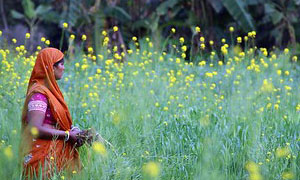
Innovations in agricultural insurance: Lessons learnt about managing smallholder farmer risks
Co-Organized by the CGIAR Research Program on Policies, Institutions, and Markets (PIM) and Food Security Portal (FSP)
Virtual Event: OCT 26, 2021 – 11:00 AM to 12:00 PM EDT. This webinar will present an evaluation of how action oriented research on tools for improving smallholder farmers have spawned further interest by different sector actors.
-
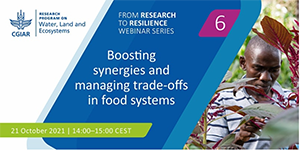
Boosting synergies and managing trade-offs in food systems
CGIAR Research Program on Water, Land and Ecosystems (WLE)
Virtual Event: OCT 21, 2021 – 08:00 AM to 09:00 AM EDT. This webinar discusses evidence, actions and lessons learned on how to leverage biodiversity in our food systems for people and planet.
-
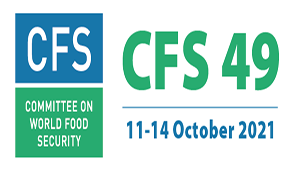
SIDE EVENT 5 | From Commitments to Action: The Importance of the CFS Voluntary Guidelines for a Coalition for Action on Healthy Diets from Sustainable Food Systems
Hosted by Committee on World Food Security (CFS)
Virtual Event: OCT 12, 2021 – 06:45 AM to 08:15 AM EDT. IFPRI is participating in the 49th session of the committee on World Food Security (CFS) Side Event 5.
-
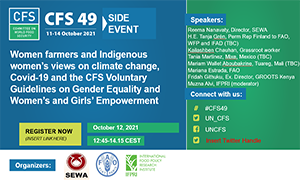
SIDE EVENT 8 | Women farmers and Indigenous women’s views on climate change, Covid-19 and the CFS Voluntary Guidelines on Gender Equality and Women’s and Girls’ Empowerment
Co-Organized by IFPRI, Self Employed Women’s Association (SEWA) and Food and Agriculture Organization (FAO)
Virtual Event: OCT 12, 2021 – 06:45 AM to 08:15 AM EDT. This side event will focus on gender equality and women's and girls' empowerment.
-
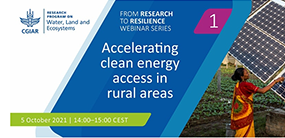
Accelerating clean energy access in rural areas
CGIAR Research Program on Water, Land and Ecosystems (WLE)
Virtual Event: OCT 5, 2021 – 08:00 AM to 09:00 AM EDT. This webinar will present research that can help countries enhance smallholder access to clean energy and address climate adaptation/ mitigation challenges.
-
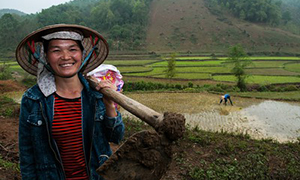
Myths about the feminization of agriculture: Implications for global food security
CGIAR Research Program on Policies, Institutions, and Markets (PIM)
SEP 14, 2021 – 10:00 AM to 11:00 AM EDT. This webinar will present and discuss finding of a new paper on myths about the feminization of agriculture.
-
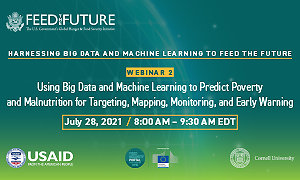
Using Big Data and Machine Learning to Predict Poverty and Malnutrition for Targeting, Mapping, Monitoring, and Early Warning
Co-organized by Cornell University and Food Security Portal of IFPRI
Virtual Event: July 28, 2021 – 08:00 AM to 9:30 EDT. This webinar will highlight the differences between poverty and malnutrition targeting and mapping.
-
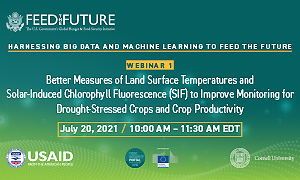
Better Measures of Land Surface Temperatures and Solar-Induced Chlorophyll Fluorescence (SIF) to Improve Monitoring for Drought-Stressed Crops and Crop Productivity
Co-organized by Cornell University and the Food Security Portal of IFPRI
Virtual Event: July 20, 2021 – 10:00 AM to 11:00 AM EDT. This webinar will discuss how satellite remote sensing offers an inexpensive, timely solution to monitor conditions on the Earth's surface.
-
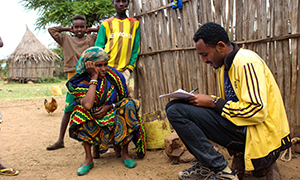
Measuring employment and consumption in household surveys: Reflections from three survey experiments
CGIAR Research Program on Policies, Institutions, and Markets (PIM)
Virtual Event: July 13, 2021 – 10:00 AM to 11:00 AM EDT. This event will discuss how survey efforts are invaluable tools for development practitioners.
-
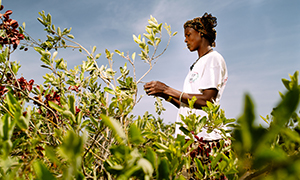
Feminization of Agriculture: Building evidence to debunk myths on current challenges and opportunities
CGIAR Research Program on Policies, Institutions, and Markets (PIM)
Virutal Event: June 10, 2021- 09:00 AM to 10:30 AM EDT. This webinar will present the findings of the dynamics and impacts of migrations on gender relations in agriculture and natural resource domains.
-
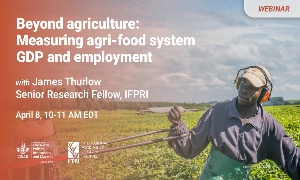
Beyond agriculture: Measuring agri-food system GDP and employment
CGIAR Research Program on Policies, Institutions, and Markets (PIM)
Transformation of the agri-food system is a cornerstone of many governments’ national development plans and is key to the One GGIAR goals of contributing to more inclusive agricultural growth, healthier diets, and more sustainable production systems. Agri-food systems remain crucial for the livelihoods and wellbeing of most of the world’s poor, and successful agricultural transformation […]
-
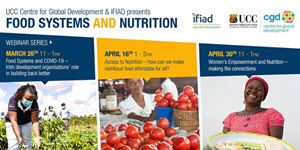
Food Systems and COVID-19: Irish development organizations’ role in building back better
IFPRI’s Director General Johan Swinnen is participating in the UCC Centre for Global Development and IFIAD three-part webinar series on Food Systems and Nutrition. The series aims to highlight work being done by Irish development institutions, and generate discussion on how to move forward looking toward the UN Food Systems Summit. This webinar will highlight vulnerabilities in food systems exposed […]
-
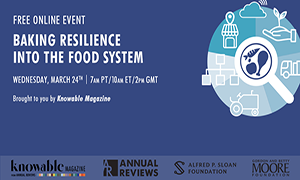
Baking Resilience into the Food System
IFPRI’s Director General Johan Swinnen is participating as a speaker in the Baking Resilience Into Food System webinar hosted by Knowable Magazine. This webinar will highlight how food supply chains fare in different regions, what safety nets exist for those at risk of food insecurity, and what the benefits and drawbacks of local food-based systems are […]
-
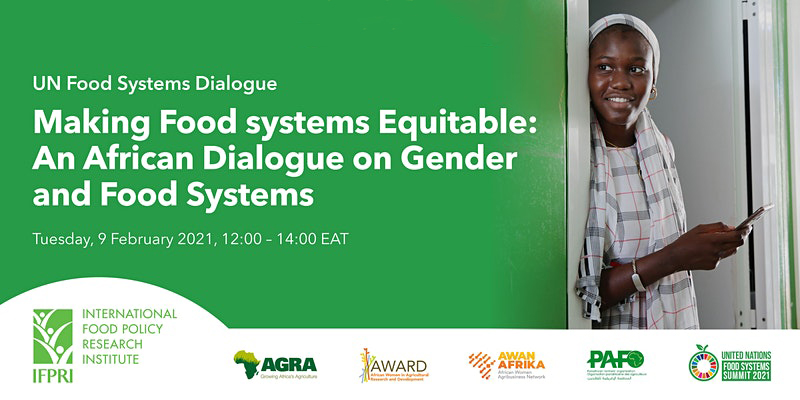
Making Food systems Equitable: An African Dialogue on Gender & Food Systems
Co-Organized by International Food Policy Research Institute (IFPRI), African Women in Agriculture Research and Development, Africa Women in Agribusiness, Alliance for a Green Revolution in Africa, Pan Africa Farmers organization.
In countries where gender norms prevent women from owning property and resources, people are also the hungriest. This is because gender equality and food systems are intertwined. Too often, we only focus on the roles that women play in production, processing, trading of food, and in making decisions about consumption and purchase of food at […]
-
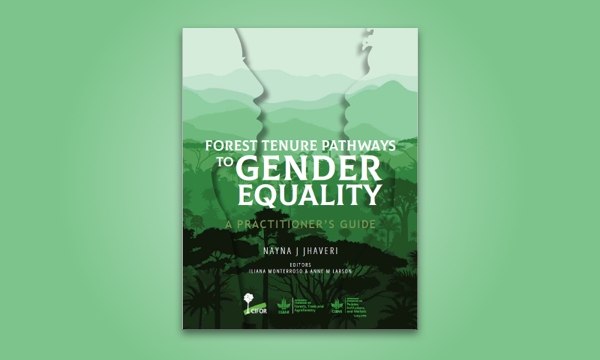
Forest Tenure Pathways to Gender Equality: A Practitioner’s Guide
There is no single approach to reforming forest tenure practices for achieving gender equality and women’s empowerment. Rather, it involves taking advantage of opportunities that emerge in various institutional arenas, such as policy and law-making and implementation, government administration, customary or community-based tenure governance, or forest restoration at the landscape scale. The overall aim is […]
-
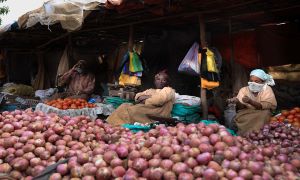
COVID-19 Risk and Food Value Chains
Co-Organized by the CGIAR Research Program on Policies, Institutions, and Markets (PIM) and the Food Security Portal
The short- and long-term impacts of the COVID-19 pandemic on food systems remain uncertain, raising concerns about food security. The pandemic’s public health impacts, as well as the economic and logistical impacts of pandemic response measures such as lockdowns and travel restrictions, have the potential to disrupt food value chains around the globe. Such disruptions […]
-
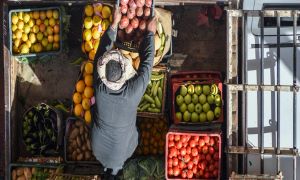
Beyond COVID-19: Recommendations from Five Years of Policy Research in Egypt and Directions for the Future
Recommendations from five years of policy research in Egypt and directions for the future.
Details & Registration
-
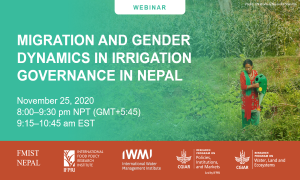
Migration and Gender Dynamics in Irrigation Governance in Nepal
Co-Organized by the CGIAR Research Program on Policies, Institutions, and Markets (PIM), FMIST, IFPRI, IWMI, and WLE
Widespread male migration from rural areas is one of the most important forces shaping agrarian transformation in Nepal. One particularly important area affected is the governance and management of local public goods, especially irrigation systems. Given the crucial role of irrigation in agricultural productivity and food security, attention to gender in irrigation governance is not […]
-
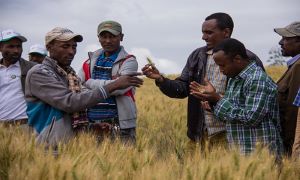
Transforming Seed Marketing – Lessons from Ethiopia
Co-Organized by Ethiopia’s Agricultural Transformation Agency (ATA), the CGIAR Research Program on Policies, Institutions, and Markets (PIM), and the Integrated Seed Sector Development Programme in Ethiopia (ISSD Ethiopia)
Having shifted from centralized seed supply to a growing system of direct seed marketing (DSM), the ways in which farmers in Ethiopia hear about and access quality seed are unrecognizable from just a decade ago. This webinar will share different perspectives on this transformation, highlight innovations – from piloting to scaling and embedding – that […]
-
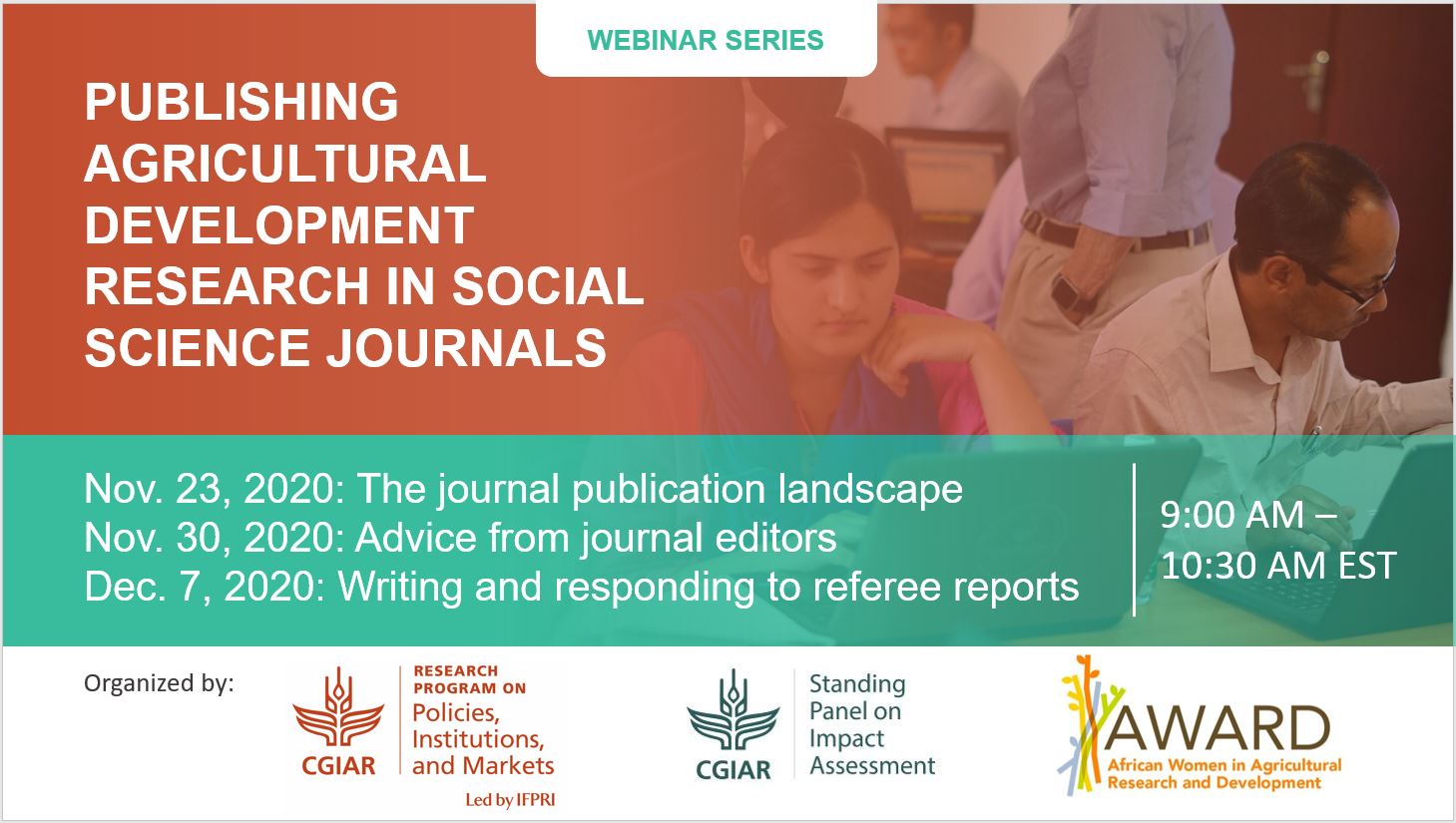
Publishing Agricultural Development Research in Social Science Journals
Co-Organized by the CGIAR Research Program on Policies, Institutions, and Markets (PIM), CGIAR Standing Panel on Impact Assessment (SPIA), and African Women in Agricultural Research and Development (AWARD)
While there are many important ways to disseminate findings from agricultural development research, publishing in reputable, peer reviewed journals is particularly important for researchers as a means to not only showcase their work but also solicit peer input, gauge how their own work compares with that of others, and enhance options for career advancement. Deciding […]
-
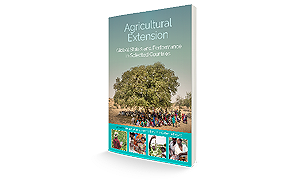
East Africa Perspectives on the Book: Agricultural Extension – Global Status and Performance in Selected Countries
IFPRI Ethiopia and IFPRI Malawi are co-organizing a webinar on the recently launched IFPRI book, “Agricultural Extension: Global Status and Performance in Selected Countries“. The book, edited by Kristin Davis, Suresh Babu, and Catherine Ragasa, provides a global overview of agricultural extension and advisory services and assesses and compares extension systems at the national and regional […]
-
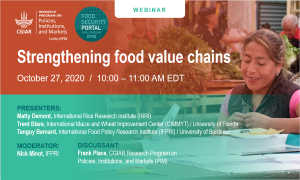
Strengthening Food Value Chains
Co-Organized by the CGIAR Research Program on Policies, Institutions, and Markets (PIM) and the Food Security Portal
Across the developing world, urbanization and income growth are driving massive shifts in consumers’ food preferences and subsequently in the form and functioning of local and regional food value chains. These changes hold great potential for improving livelihoods and food security in developing countries, but they also carry social, economic, environmental, and health risks. A […]
-
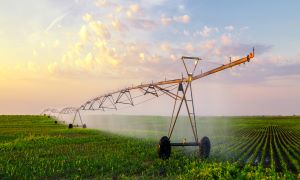
T20 Summit Season 2020
Task Force 10: Sustainable Energy, Water, and Food Systems
IFPRI is participating in a Task Force 10 webinar as part of the T20 Summit Season. Task Force 10 will produce policy recommendations to enhance the management of energy, water and food systems and ensure security of supply for the global population in an efficient and sustainable way. The scale of existing networks and value chains and […]
-
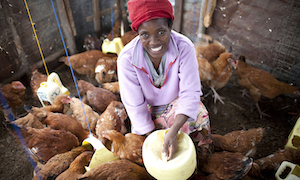
Opening new business doors for ag transformation: Youth entrepreneurship in farm value chains and rural development
Co-Organized by IFPRI and the Syngenta Foundation for Sustainable Agriculture (SFSA)
As entrepreneurs, young people can play a major role in the transformation of agriculture. In developing countries, too few of them currently get the chance. But numerous governments are now creating entrepreneurial agribusiness opportunities through new programs and policies. The private sector, investors and non-profit organizations are also closely involved. Big questions remain to be […]
-
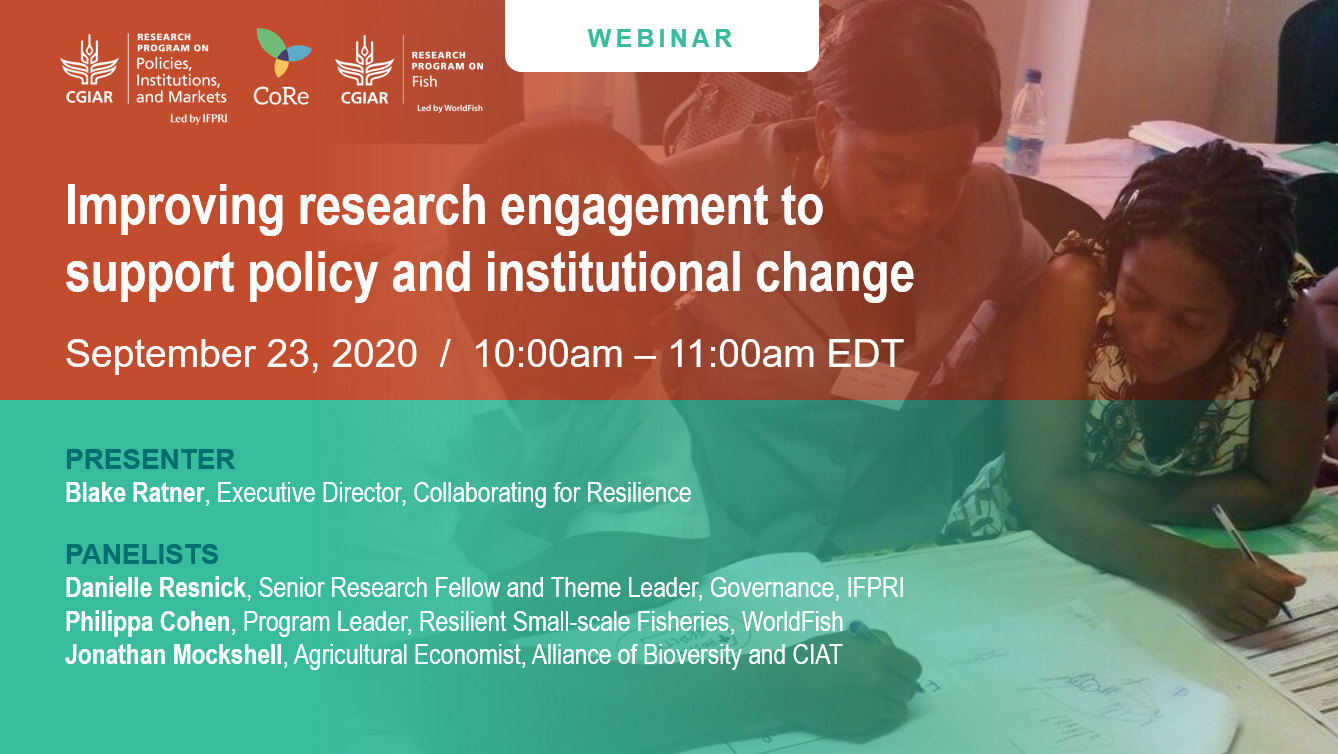
Improving research engagement to support policy and institutional change
Co-Organized by the CGIAR Research Program on Policies, Institutions, and Markets (PIM), the CGIAR Research Program on Fish Agri-Food Systems, and Collaborating for Resilience (CoRe)
Too often, research aiming to inform public policies or strengthen institutions for effective policy implementation remains disconnected from the real political economy of policy and institutional reform. This webinar will introduce a new rubric to assess opportunities for research partnerships that navigate this complex terrain of power and leverage sometimes unexpected spaces of engagement. The rubric […]
-
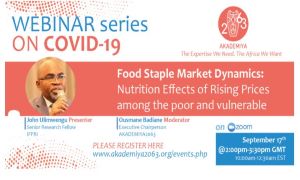
Food Staple Market Dynamics: Nutrition Effects of Rising Prices among the poor and vulnerable
IFPRI Senior Research Fellow John Ulimwengu is participating in the webinar, “Food Staple Market Dynamics: Nutrition Effects of Rising Prices among the poor and vulnerable” on September 17, 2020. Coronary heart disease, stroke, hypertension, atherosclerosis, obesity, some forms of cancer, Type 2 diabetes, osteoporosis, gall bladder disease, dementia and nutritional anemia are major causes of death, illness […]
-
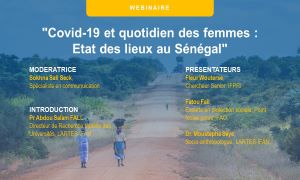
COVID-19 et quotidien des femmes : Etat des lieux au Sénégal
Organisé par L’Institut international de recherche sur les politiques alimentaires (IFPRI) et le Laboratoire de recherche sur les transformations économiques et sociales (LARTES)
L’Institut international de recherche sur les politiques alimentaires (IFPRI) et le Laboratoire de recherche sur les transformations économiques et sociales (LARTES) vous invitent à prendre part au webinaire qu’ils organisent le jeudi 3 septembre 2020 sur le thème : COVID-19 et quotidien des femmes : Etat des lieux au Sénégal. Le premier patient positif à la COVID-19 […]
-
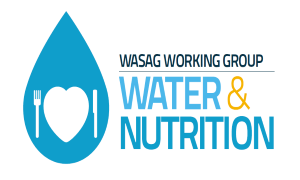
WASAG: Actions for Water and Nutrition Security
A World Water Week 2020 Session
Claudia Ringler, IFPRI’s Deputy Division Director of Environment Production and Technology Division, is participating in a session at World Water Week 2020. This Global Framework on Water Scarcity in Agriculture (WASAG) session introduces the WASAG Working Group on Water & Nutrition; describes guidelines to strengthen nutrition outcomes in irrigation and water resource development projects and provides new […]
-
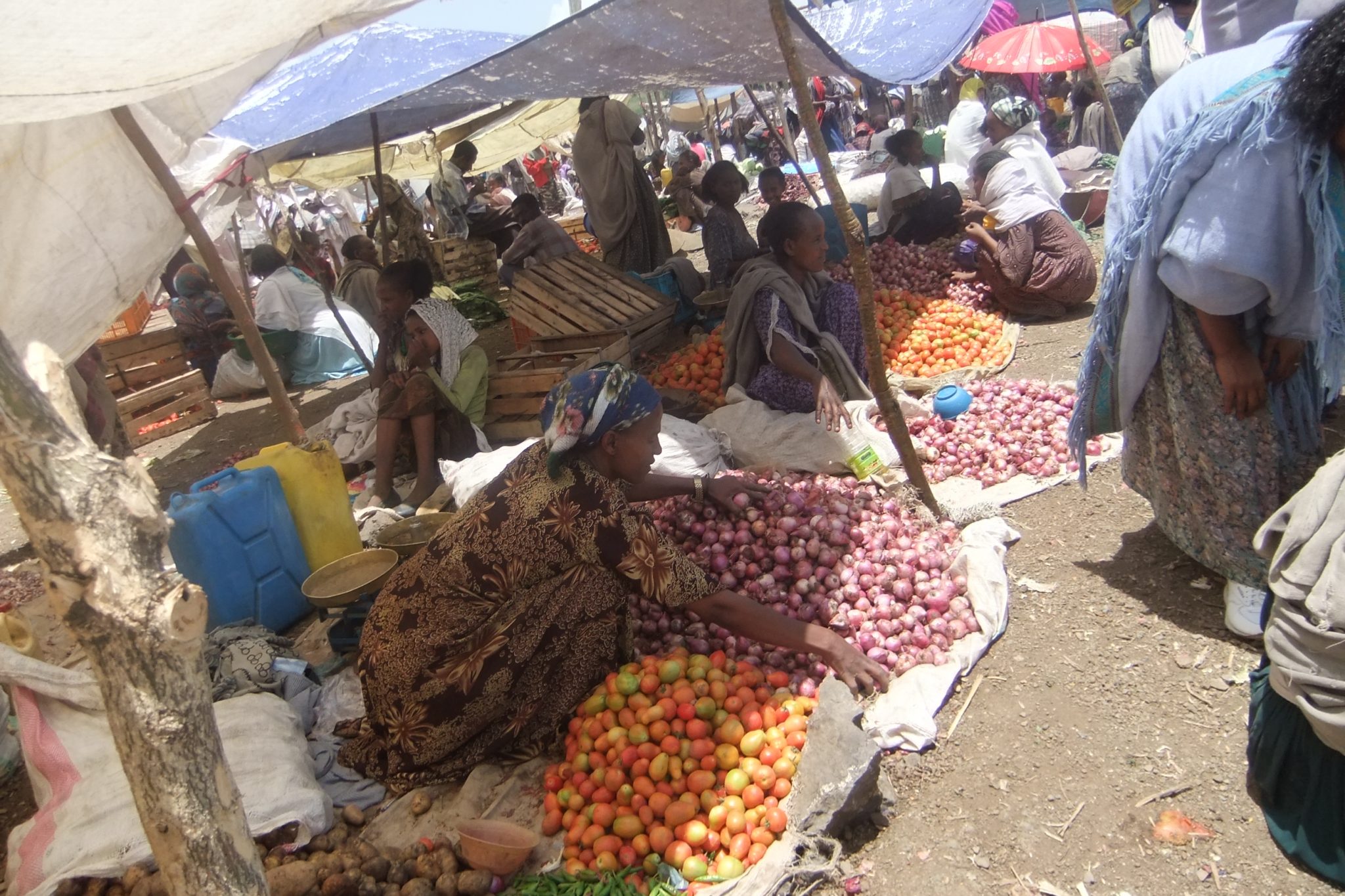
Some Welfare Consequences of COVID-19 in Ethiopia
Co-Organized by IFPRI and the Policy Studies Institute (PSI)
Cross-country experience so far shows that the impact of the COVID-19 pandemic and responses to combat are multidimensional. It is thus reasonable to expect the occurrence of these effects in Ethiopia. Findings of several studies will be reported during this webinar. The presentations focus on the impact of COVID-19 on the welfare of mothers and […]
-

Impacto del COVID-19 en la mala nutrición infantil
Marie Ruel, directora de la División de Pobreza, Salud y Nutrición del IFPRI, participa en el seminario web “Impacto del COVID-19 en la mala nutrición infantil”. Los oradores especialistas discutirán las estimaciones a nivel global sobre desnutrición y muertes causadas por covid-19 y qué debemos hacer al respecto, de acuerdo a las recomendaciones de UNICEF […]
-
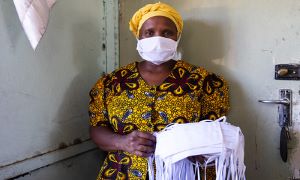
Policies to address COVID-19’s impact on Africa’s informal sector
IFPRI Senior Research Fellow Danielle Resnick is participating in an International Growth Centre (IGC) webinar that explores the impact of COVID-19 on informal workers and discusses necessary policy measures to enhance social protection coverage and support mechanisms to protect informal workers if they lose their livelihoods. Ongoing IGC surveys of traders in Nigeria and Sierra Leone show […]
-
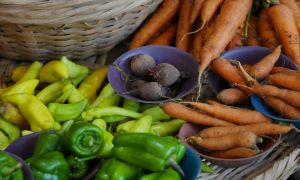
INCAP presentará traducción autorizada de The Lancet sobre Doble Carga de la Malnutrición
Marie Ruel, directora de la División de Pobreza, Salud y Nutrición del IFPRI, está participando en el Seminario web de lanzamiento de la versión española de la “Serie de la Revista The Lancet: Doble Carga de la Malnutrición”. La serie de la revista científica se enfoca en la presencia simultánea de la desnutrición y la obesidad a […]
-
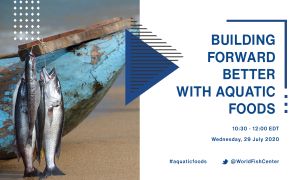
Virtual Dialogue: Building Forward Better with Aquatic Foods
IFPRI’s Director General Johan Swinnen is participating in this high-level discussion forum hosted by WorldFish on aquatic food systems and their contribution to global food and nutrition security. COVID-19 has exacerbated efforts to improve food and nutrition security around the world, demonstrating our food systems are not prepared to withstand shocks. Aquatic foods must be part of this […]
-
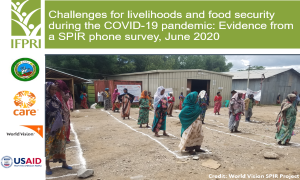
SPIR Learning Agenda: Challenges for livelihoods and food security during the COVID-19 pandemic
The webinar on challenges for livelihoods and food security during the COVID-19 pandemic presents results of a phone survey conducted in early June 2020 of more than 1,100 rural households who are beneficiaries of the fourth phase of Ethiopia’s Productive Safety Net Program (PSNP4) and who also participate in the USAID-funded Strengthening PSNP4 Institutions and […]
-

Sharing civil society experiences in adapting evidence-based advocacy
Co-Organized by the Government of the Netherlands Ministry of Foreign Affairs, IFPRI, and SNV
IFPRI’s Deputy Division Director of Markets, Trade, and Institutions Nicholas Minot is participating in the webinar, “Sharing civil society experiences in adapting evidence-based advocacy” on July 15, 2020. The COVID-19 pandemic has caused a seismic shift in the way our world operates. How can civil society use evidence-based advocacy to effectively contribute to inclusive recovery […]
-
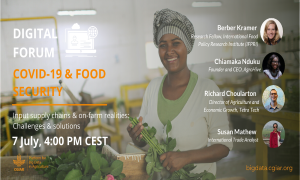
COVID-19 & food security: A discussion series on big data solutions
IFPRI Research Fellow Berber Kramer is participating in The CGIAR Platform for Big Data in Agriculture’s digital forum on COVID-19 and food security. This episode will focus on challenges and solutions to input supply chains and on-farm realities. The forum brings emergent research and on-the-ground realities together in conversation in order to map out the direct […]
-
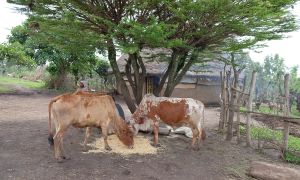
Improving evidence for better policy making in Ethiopia’s livestock sector
Co-Organized by IFPRI, EIAR, and PSI
In collaboration with the Livestock Systems Innovation Lab (LSIL), the International Food Policy Research Institute (IFPRI) has been doing collaborative work over the last 3 years with the Ethiopian Institute of Agricultural Research (EIAR) and Policy Studies Institute (PSI) to study the livestock sector in Ethiopia. Analysis has been done on the consumption and markets […]
-
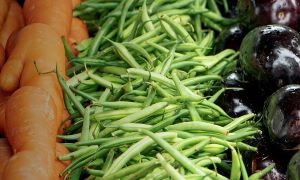
Food Security as a Challenge in Post COVID-19
IFPRI’s Head of Latin American and Caribbean Program Eugenio Diaz-Bonilla is participating in a webinar that will consider the role of international law as a vehicle to build resilience for food security in the wake of the pandemic and towards the actualization of SDG two. This session is part of the Organization of American States’ Inter-American Law in times of pandemic […]
-
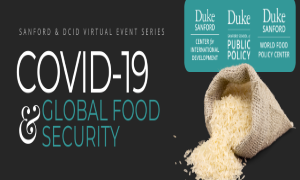
COVID-19 & Global Food Security
IFPRI’s Director General Johan Swinnen is participating in the fourth installment of the COVID-19 and International Development virtual event series sponsored by DCID and the Sanford School of Public Policy. While COVID-19 has touched nearly every country in the world, low- and middle- income countries are particularly vulnerable to compounded effects of the pandemic. In many places, […]
-
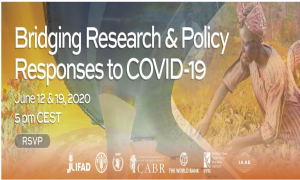
Online Talks – Bridging Research and Policy Responses to COVID-19
IFPRI is participating in two online talks on bridging research and policy responses to COVID-19. These webinars will bring together academics and policy-makers to synthetize responses on the most relevant topics for the Rome-based food and agriculture Agencies: The future of the value chain, food security, women, youth and vulnerable groups in the post-coronavirus era. […]
-

Economic Impacts of COVID-19 on Growth, Poverty and Food Systems in Malawi: Initial Results
IFPRI-Malawi is organizing a webinar on initial results undertaken by IFPRI of the modeling of the short-term economic impacts of COVID-19 in Malawi. Two scenarios are considered: (a) 2 months of social distancing plus external shocks in April/May; (b) the proposed (but not implemented) 21-day lockdown plus social distancing and external shocks, each followed by either fast or […]
-
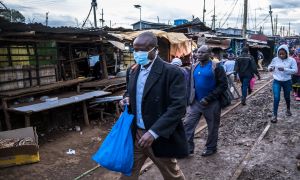
How are African governments responding to avert a COVID-19 hunger crisis?
Ceres2030– a joint initiative by IISD, the International Food Policy Research Institute (IFPRI), and Cornell University –provides the donor community with a menu of policy options for directing their investments, backed by the best available evidence and economic models. With the global economy reeling from COVID-related measures, the world faces the risk of a dramatic rise […]
-
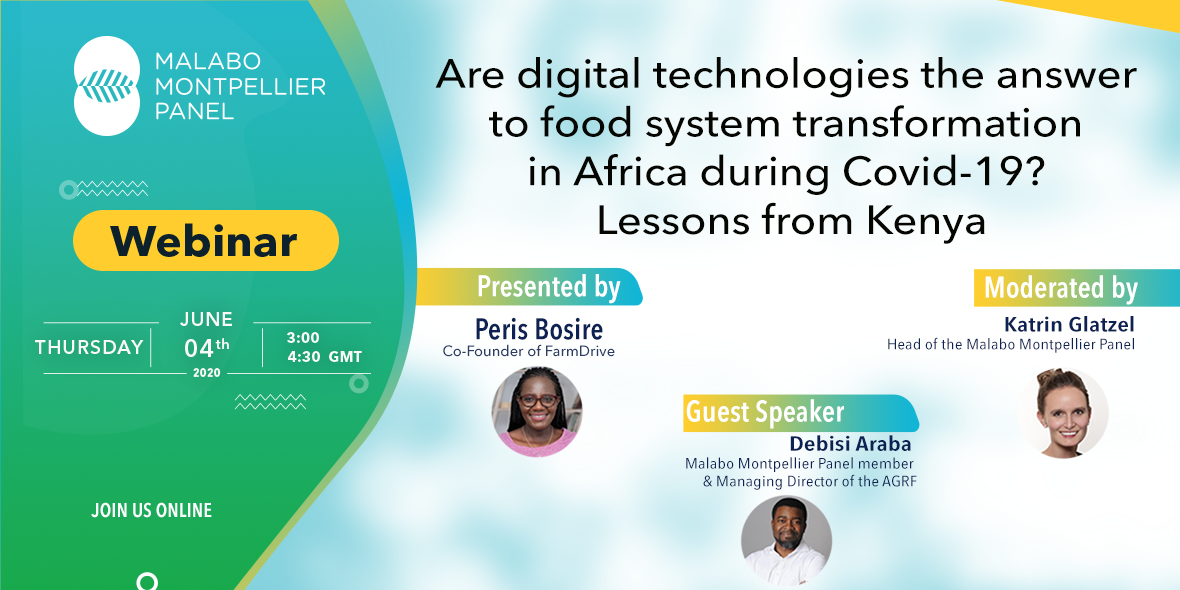
Are digital technologies the answer to food system transformation in Africa during Covid-19? Lessons from Kenya
During this webinar, insights will be shared on the strong institutional, policy and programmatic developments that are making Kenya one of the frontrunners on agricultural digitalization across the continent and how digital technologies can provide some immediate and longer-term answers to securing food supplies in Africa’s urban areas in the context of COVID- 19. Discussions […]
-
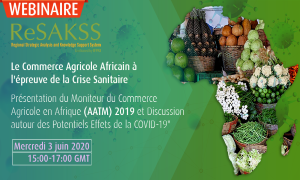
African Agricultural Trade under the Health Crisis Pressure: Presentation of the 2019 African Agricultural Trade Monitor (AATM) and Discussion around the Potential Effects of Covid-19
The AATM 2019 presents a description of the most important barriers to the integration of trade in Africa, a presentation of successful trade agreements and less efficient agreements at regional level, an identification of the most competitive sectors and a study of the characteristics of specialization. by sector. The report also offers an assessment of […]
-
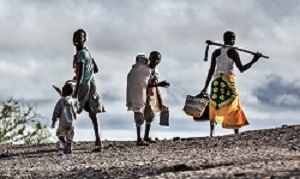
The Coming Crisis: Preventing a Hunger Catastrophe amid the COVID-19 Pandemic
Co-Organized by FAO North America and the Alliance to End Hunger in conjunction with the House Hunger Caucus
IFPRI’s Director General Johan Swinnen is participating in a high-level congressional webinar briefing. The event will discuss the key findings of the 2020 Global Report on Food Crises and opportunities to prevent an unprecedented hunger catastrophe.
-
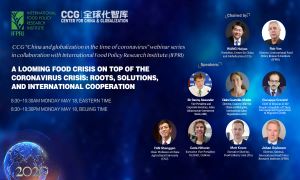
A looming food crisis on top of the coronavirus crisis: Roots, solutions, and international cooperation
Co-Organized by the Center for China and Globalization (CCG) and IFPRI
The ongoing global outbreak of COVID-19, which so far has infected some 4 million and killed over a quarter of a million people worldwide, continues to cause havoc on the global economy and is putting pressure on health systems. There are also increasing concerns that this health crisis could turn into a food crisis. The […]
-
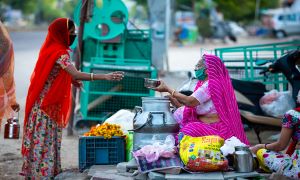
The Neglected Epidemics of India: How will COVID-19 Affect Them?
IFPRI Senior Research Fellow Purnima Menon is participating in a webinar hosted by Harvard’s Medical School on the neglected epidemics of India, and how COVID-19 will affect them on May 14, 2020.
-
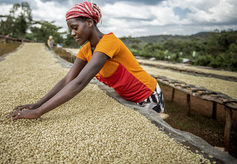
COVID-19 and its impact on Ethiopia’s agri-food system, food security, and nutrition
Co-Organized by IFPRI, Ethiopian Public Health Institute (EPHI) Training Centre, Policy Studies Institute (PSI), and International Growth Centre (IGC)
The COVID-19 crisis is creating havoc globally. Ethiopia is affected as well. While the number of COVID-19 cases is still rather low, the Government of Ethiopia has taken several measures to reduce the possible spread of the virus. However, it is yet unclear what the impact is of these measures and of the international economic […]
-
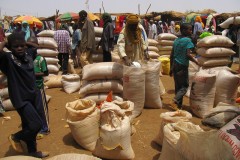
Near-Real-Time Monitoring of Food Crisis Risk Factors: State of Knowledge and Future Prospects
Organized by the Food Security Portal (FSP)
On May 8, the Food Security Portal will host a webinar on important food crisis risk monitoring efforts. The event will highlight priority research and policy questions, identify gaps in existing monitoring efforts, and pinpoint opportunities for collaboration to inform policy. Food security and nutrition security, particularly in low-income countries, continue to face significant challenges, from […]
-
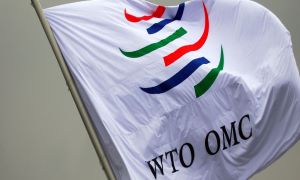
Domestic support disciplines for the 21st century: A blueprint for the WTO 12th Ministerial Conference
Organized by the CGIAR Research Program on Policies, Institutions, and Markets (PIM)
This webinar will consider several scenarios based on the current global situation and the communications on the domestic support plans submitted by countries in preparation for the upcoming WTO Ministerial Conference.
-
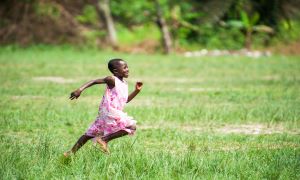
Analysis of nutrition research networks in West Africa: Application of social network analysis to co-authorship data to understand and enhance collaboration
This webinar will present results from social network analysis (SNA) of nutrition networks in West Africa. A sub-component of the systematic review, this work applies SNA to authorship and affiliation data collected for the review to illuminate the patterns of collaboration and the structures of collaborative networks. The results highlight how SNA can be used […]
-
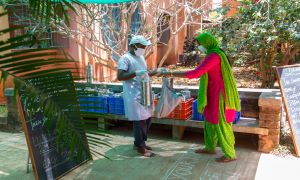
Are We Heading Toward Another Global Food Price Crisis?
IFPRI Senior Research Fellow Joe Glauber is participating in a CSIS webinar where experts will share their perspectives on the role of governments and industry in averting another global food price crisis. Despite strong agricultural productivity and ample grain stocks worldwide, numerous countries have applied food export restrictions for fear that supplies will run short […]
-
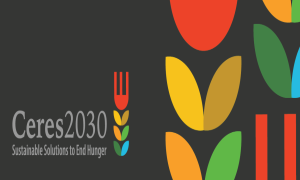
Ceres2030 Virtual Meeting: COVID-19 & Global Food Security Implications
As the lock-downs continue and the commentaries on food security and COVID-19 start to come in, what are we learning? What do we know, what trends are suggestive, and what is still unknown? The Ceres2030 project – a joint initiative by the International Institute for Sustainable Development (IISD), the International Food Policy Research Institute (IFPRI), […]
-
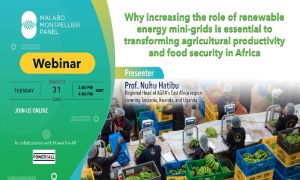
Why increasing the role of renewable energy mini grids is essential to transforming agricultural productivity and food security in Africa
Malabo Montpellier Webinar Series
This webinar will explore opportunities for synergies between the expansion of mini-grids and strengthening Africa’s agricultural value chains. The Malabo Montpellier Panel’s 2019 report Energized focuses on what six African countries – Ethiopia, Ghana, Morocco, Senegal, South Africa, and Zambia – have done successfully in terms of institutional and policy innovation for energy expansion in support […]
-
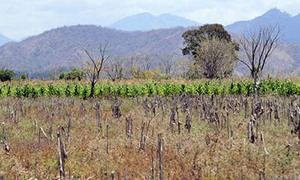
Climate Change and Agriculture in Central America and the Andean Region
Organized by the CGIAR Research Program on Policies, Institutions, and Markets (PIM)
Climate change poses a threat to food security and nutrition, largely through its impacts on agricultural production. To help developing countries identify where adaptation measures are most needed, IFPRI, with support from the CGIAR Research Programs on Policy, Institutions, and Markets (PIM) and Climate Change, Agriculture, and Food Security (CCAFS), conducted a multiyear study to […]
-
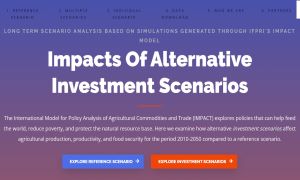
Launching the Global Foresight for Food and Agriculture Tool
Co-Organized by the Food Security Portal, IFPRI, and the CGIAR Research Program on Policies, Institutions, and Markets (PIM)
Join the Food Security Portal (FSP), International Food Policy Research Institute (IFPRI), and CGIAR Research Program on Policies, Institutions, and Markets (PIM) in the launch of the global foresight tool Impacts of Alternative Investment Scenarios. The tool was recently developed by IFPRI’s IMPACT model team and the FSP. The Global Foresight tool provides researchers and […]
-
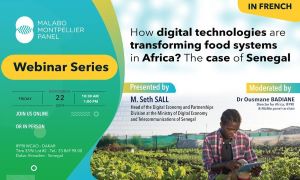
Digital Technologies for Agricultural Transformation – Case of Senegal
Malabo Montpellier Webinar Series
The Malabo Montpellier Panel’s last report, Byte by Byte: Policy innovation for transforming Africa’s Food system with digital technologies has presented experiences from 7 African countries. Join us on November 22nd to learn more from the Senegal’s case study with interventions from Mr. Seth Sall, Head of Digital Economies and Partnerships Division at the Ministry […]
-
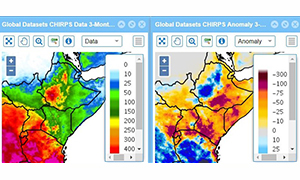
Using Satellite Imagery for Early Warning of Productivity Constraints
Organized by the Food Security Portal (FSP)
On October 31, the NASA Harvest Consortium in collaboration with the Food Security Portal will hold a webinar to discuss the potential of satellite imagery for food crisis early warning systems. This webinar will provide an opportunity to share the current state of knowledge and to identify areas new or further collaboration. The 2019 Global […]
-
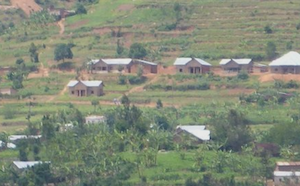
Changing Farm Structure and Rural Transformation in Africa
The study discussed during this webinar presents evidence of profound farm-level transformation in parts of Sub-Saharan Africa, identifies the key sources of dynamism in the sector, and proposes an updated typology of farms that reflects the evolving nature of African agriculture. The rise of medium-scale farms is affecting the region in diverse ways that are […]
-
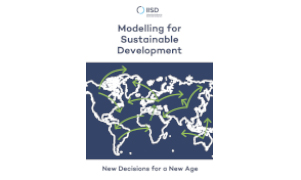
Modelling for Sustainable Development: New Decisions for a New Age
IFPRI is participating in the webinar, “Modelling for Sustainable Development: New decisions for a new age,” which will feature a presentation and discussion on October 21, 2019. “Modelling for Sustainable Development: New decisions for a new age” is a book that explores different modelling approaches that could serve policy makers and project developers as they look to incorporate […]
-
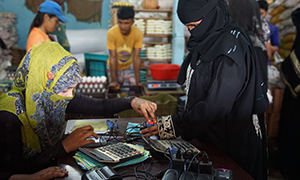
Linking Climate Change, Gender and Nutrition: Approaches, Highlights and the Way Forward (under the GCAN Initiative)
Addressing gender inequalities, improving resilience, and promoting nutrition are all important goals, which many organizations are asked to “mainstream” throughout their programming. But how do these interact, and how do they influence agricultural growth, poverty alleviation and resilience, especially gender and nutrition? To address this integration challenge, the Gender, Climate Change and Nutrition Integration Initiative […]
-
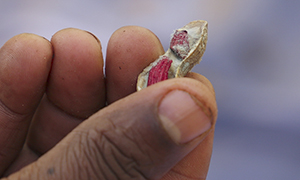
Aflatoxins: The Climate, Gender and Nutritional Linkages (under the GCAN Initiative)
Aflatoxin levels and impacts are expected to increase with higher temperatures and increased water stress, particularly in tropical and sub-tropical climates. Two key avenues to address this challenge include minimizing contamination in the growing cycle through the use of good agricultural practices and by mitigating toxin development in the postharvest supply chain; and reducing the […]
-
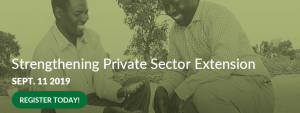
Strengthening Private Sector Extension and Advisory Services
IFPRI is participating in an Agrilinks webinar. Effective agricultural extension and advisory services are widely recognized as essential for any program to transform agricultural systems and address global, social, and economic development objectives. The idea of extension as solely the purview of government extension agencies is history. Both public and private organizations are active in extension […]
-
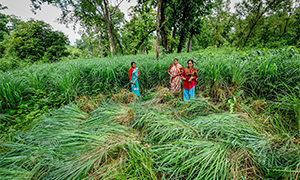
The investment effects of forest rights devolution
Organized by the CGIAR Research Program on Policies, Institutions, and Markets (PIM)
Local communities and indigenous peoples manage a significant portion of the world’s remaining forests, pastures, and fisheries as common property resources. Devolving ownership, use, and exclusionary rights to communities can, in many circumstances, provide incentives for them to manage resources in ways that facilitate sustainable management outcomes as well as greater equity in benefits distribution. […]
-
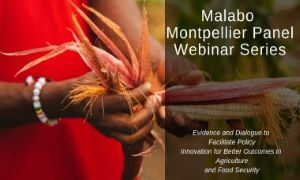
How is Rwanda Transforming its Agriculture Thanks to Mechanization?
Discussion of Lessons from Policy and Program Interventions
The Malabo Montpellier Panel’s report, “Mechanized: Transforming Africa’s Agriculture Value Chains” shows what can be done to sustainably mechanize African agriculture to increase production and enhance value addition across value chain segments. The report summarizes the findings of a systematic analysis of what countries have done right in terms of policy design, institutional innovation and interventions […]
-
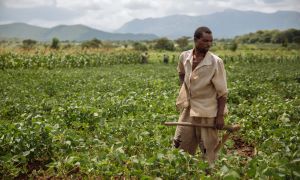
Land Tenure and Perceived Tenure Security in the Era of Social and Economic Transformation in Africa
Organized by the CGIAR Research Program on Policies, Institutions, and Markets (PIM)
Access to land and land tenure security are increasingly important for young people in Africa where population pressure has reduced the land frontier. In this webinar, we will discuss findings from a recent set of studies in Ethiopia, Malawi, Mozambique, and Nigeria that examined land access and perceived tenure security across various market, ecological, demographic, […]
-
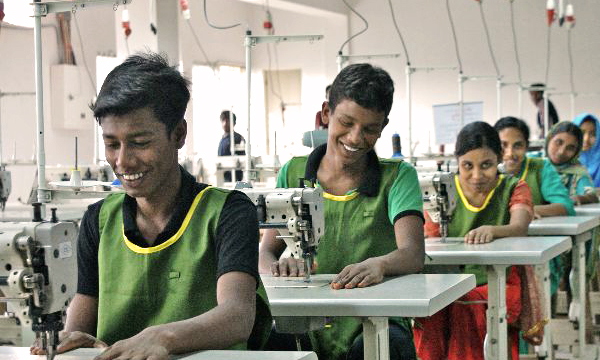
Determinants of Rural Youth Migration Throughout the Developing World
Organized by the CGIAR Research Program on Policies, Institutions, and Markets (PIM)
The decision of whether to migrate or not is one of many important decisions that young men and women make throughout the developing world. In this webinar, we will discuss determinants of internal migration by youth within five different countries (Bangladesh, Indonesia, Nigeria, Pakistan, and Tanzania) using recently collected data, investigating both broad and specific […]
-
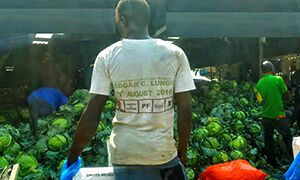
Power, Politics, and Governance in the Food System: Applications to Africa
Organized by the CGIAR Research Program on Policies, Institutions, and Markets (PIM)
Growing interest by the development community in stimulating transformation throughout the agri-food system in Africa implies a more complex role for the region’s governments. Such roles include not only creating an enabling environment for the private sector but re-orienting public expenditures, resolving coordination failures, and regulating food safety. This webinar will draw on case studies […]
-
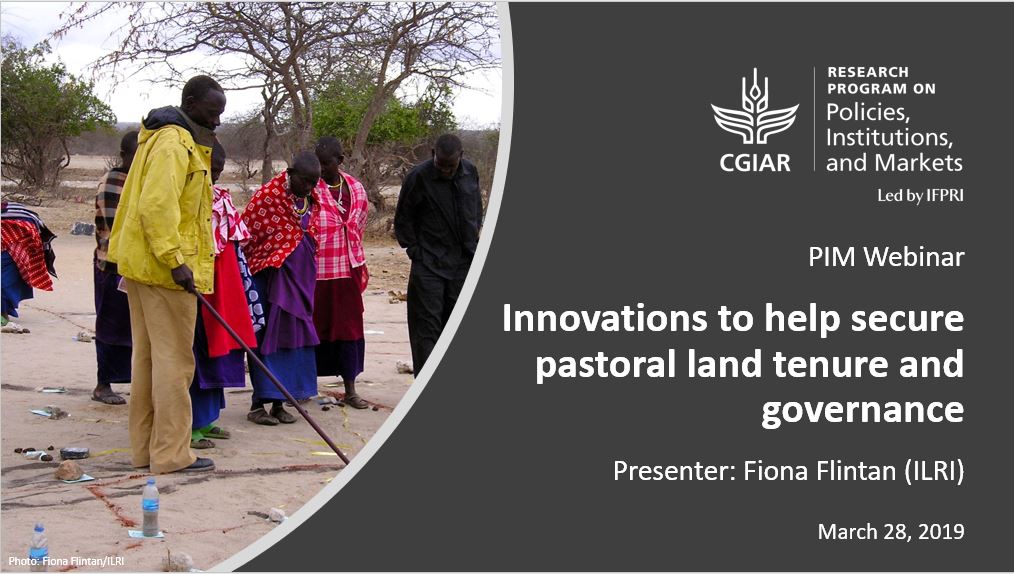
Innovations to Help Secure Pastoral Land Tenure and Governance
Organized by CGIAR Research Program on Policies, Institutions, and Markets (PIM)
How best to secure land tenure for pastoralists is an ongoing challenge for governments, practitioners, lawyers, academics, and communities themselves. As a result, pastoral lands continue to be encroached, fragmented, excised, and lost whilst all important mobility of people and livestock is blocked. The International Livestock Research Institute (ILRI) supported by two CGIAR research programs: […]
-
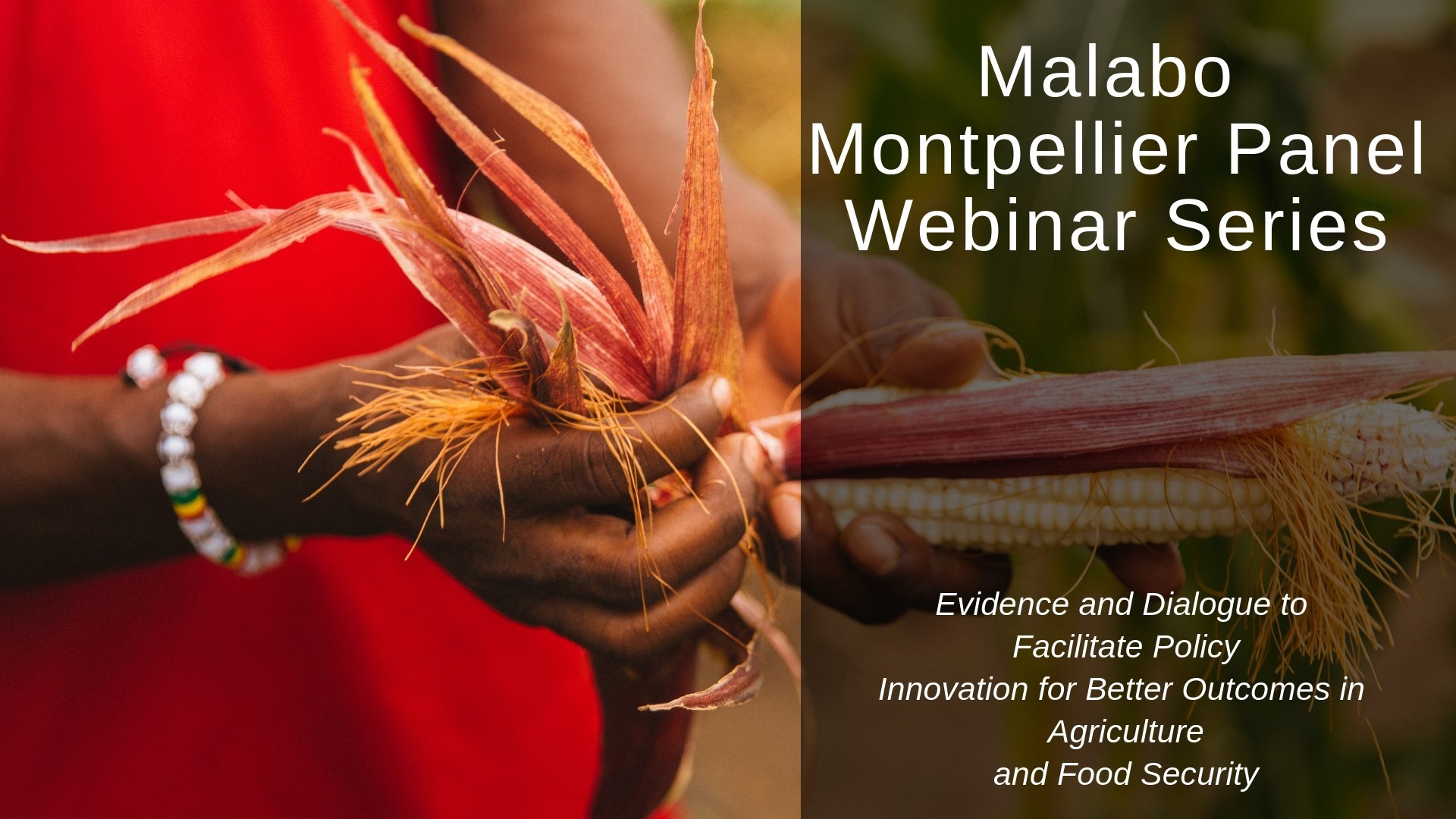
How Can Africa Achieve an Agricultural Transformation Through Smart Irrigation Strategies?
Malabo Montpellier Webinar Series
Africa is seeing a surge of interest in irrigation among small-scale farmers as climate change brings more erratic weather. Currently, only 6 percent of arable land in Africa is irrigated, compared to 14 and 37 percent in Latin America and Asia respectively. At the same time, a growing population across the continent demands more, reliable and […]
-
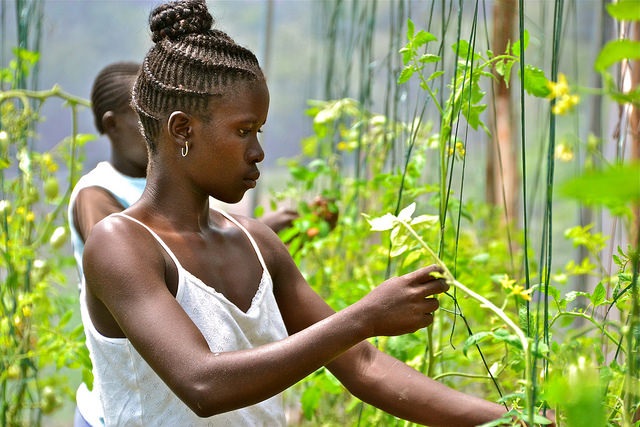
Climate Resilience and Job Prospects for Young People in Agriculture
Organized by CGIAR Research Program on Policies, Institutions, and Markets (PIM)
Climate change matters for all people. Does it matter particularly for young people? If so, where and how? Countries with a high proportion of young job seekers (for example, those projected in 2030 to have 15% or more of their populations in the age group between 15 and 24 years old) are on average more […]
-
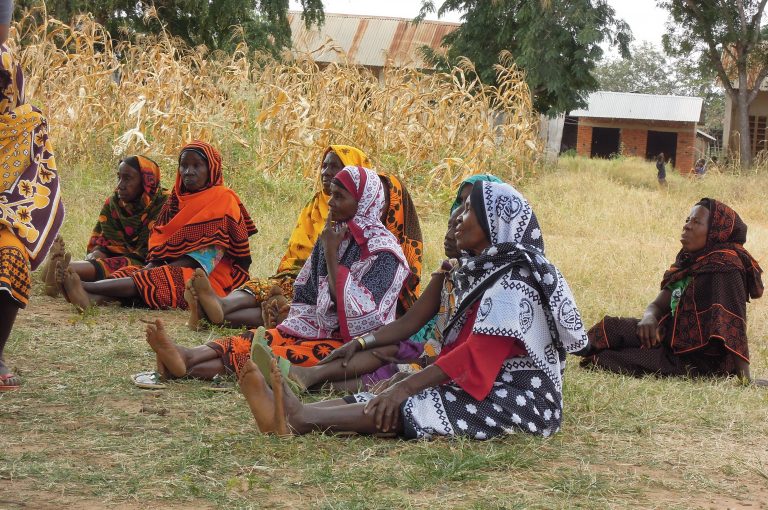
Aspirations, Trust, and Poverty Reduction
Organized by CGIAR Research Program on Policies, Institutions, and Markets
Understanding the psychological dimensions of poverty is critical for understanding how to alleviate it. The goal of this webinar is to highlight novel research on two psychological phenomena that are closely linked with experiencing poverty and economic vulnerability: 1) having low aspirations, or ambitions, for the future, and 2) having low levels of trust or […]
-
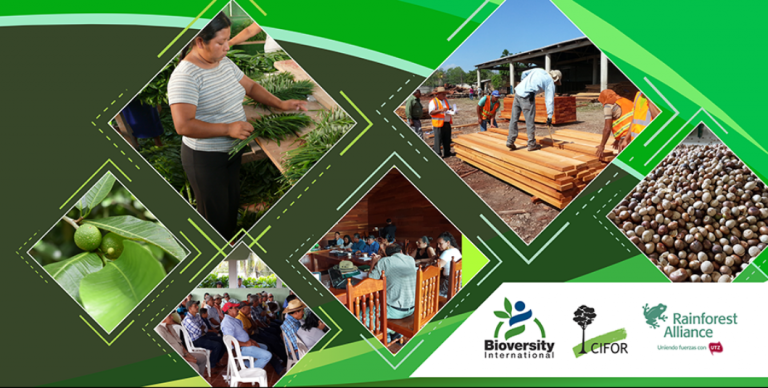
Community Forest Concessions in Petén, Guatemala: Effective Governance for Tropical Forest Conservation and Socio-Economic Development
Organized by CGIAR Research Program on Policies, Institutions, and Markets (PIM)
The devolution* of forest rights to local communities is seen as a critical element of strategies aimed at conserving tropical forests and strengthening livelihoods based on them. In the Maya Biosphere Reserve (MBR) in Petén, Guatemala, forest concessions have been granted to local communities in the Multiple Use Zone (MUZ) on close to 400,000 ha. […]
-
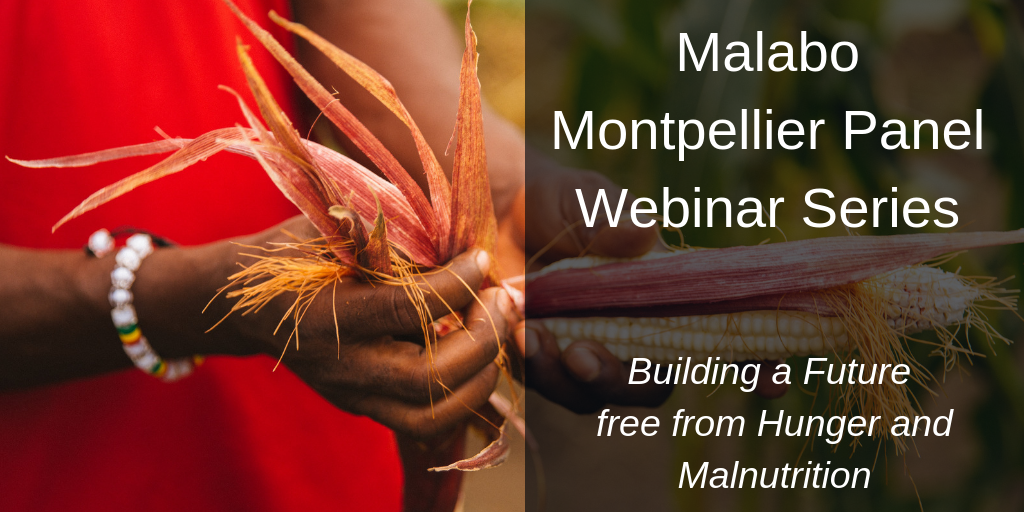
How is Senegal Winning the Battle Against Malnutrition? Discussion of Lessons from Policy and Program Interventions
Malabo Montpellier Webinar Series
Between 2000 and 2016, Senegal made remarkable progress in reducing undernutrition. The prevalence of stunting decreased from 30 to 19 percent. During this seminar/ webinar Mr. Abdoulaye Ka, Head of Senegal’s nutrition coordination unit, Cellule de Lutte Contre la Malnutrition (CLM) will discuss concrete practical steps that Senegal has taken to put into action a set […]
-
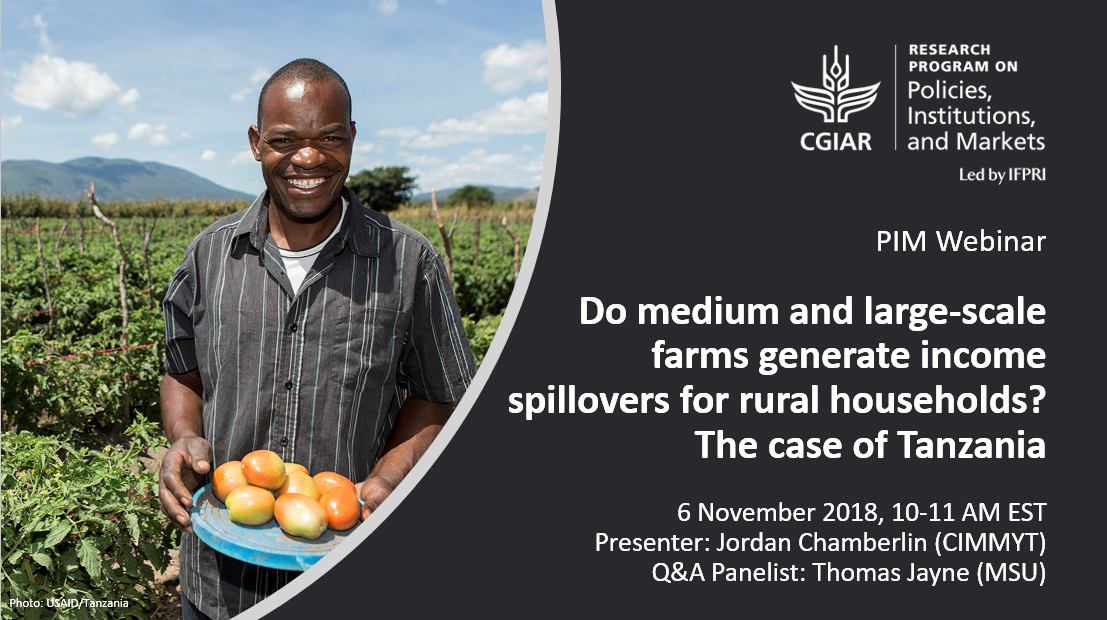
Do Medium and Large-Scale Farms Generate Income Spillovers for Rural Households? The Case of Tanzania
Organized by CGIAR Research Program on Policies, Institutions, and Markets (PIM)
Land acquisitions by foreign and local investor farmers has generated much speculation about the impacts on smallholder households and rural communities. The study that will be presented in this webinar addresses these issues by exploiting inter-district variation in farmland distribution patterns in Tanzania to determine the impact of localized farm structure on rural household incomes […]
-
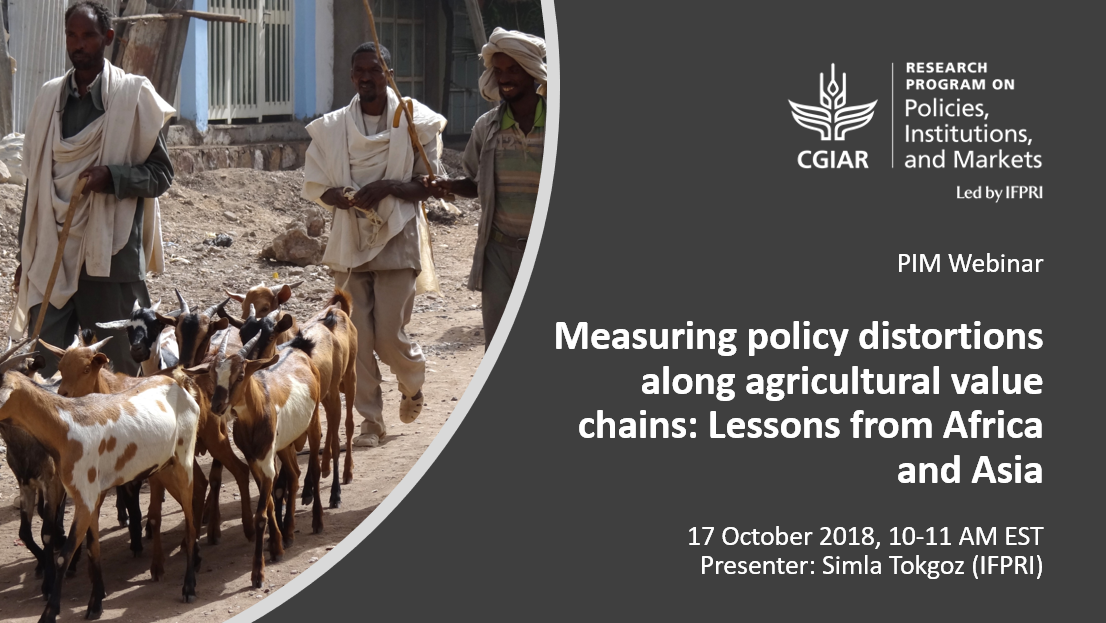
Measuring Policy Distortions Along Agricultural Value Chains: Lessons from Africa and Asia
Organized by CGIAR Research Program on Policies, Institutions, and Markets (PIM)
The global agricultural sector is undergoing a transformation, with a rapid expansion of trade in processed agricultural commodities. With this transformation comes expanded interest in how agricultural value chains can aid rural development. This requires a better understanding of how policies affect price transmission and incentives for producers and consumers along the value chain of […]
-
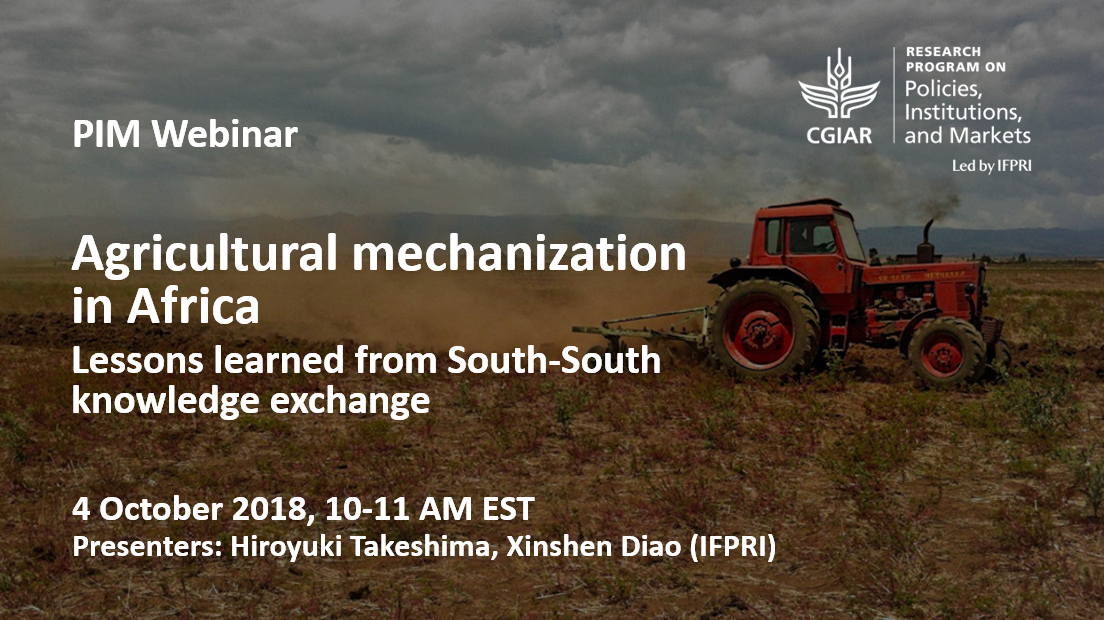
Agricultural Mechanization in Africa: Lessons Learned from South-South Knowledge Exchange
Organized by CGIAR Research Program on Policies, Institutions, and Markets (PIM)
Increased use of mechanical power for farming operations has been one of the key aspects of the agricultural and rural transformation and will remain so under the efforts toward achieving the SDGs. Agricultural mechanization in Africa gained significant attention during the 1980s, but many interventions failed due to insufficient demand at the farm level. Since […]
-
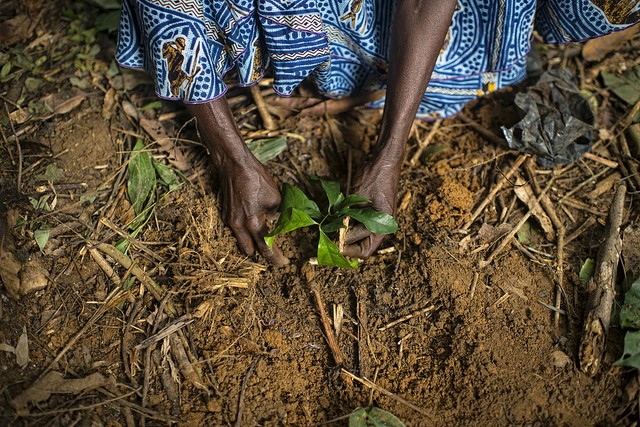
Women’s Land: Beyond “Access” to Rights
Organized by CGIAR Research Program on Policies, Institutions, and Markets (PIM)
Discussants Moderator For most rural households, land is the most valuable asset and the foundation for agricultural production. While a large literature exists on the relationships between land tenure security, livelihoods, and poverty, most of this literature is based on household-level data, and we know little about women’s land rights. As a growing body of […]
-
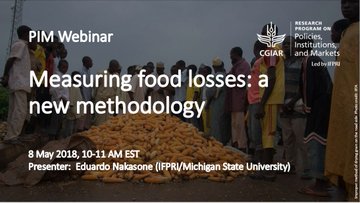
Measuring Food Losses: A New Methodology
Organized by CGIAR Research Program on Policies, Institutions, and Markets (PIM)
The United Nations has recognized the importance of reducing food loss and waste in the Sustainable Development Goal target 12.3 to “halve per capita global food waste at the retail and consumer levels and reduce food losses along production and supply chains, including post-harvest losses” by 2030. Despite broad interest in the problem, measurement of […]
-
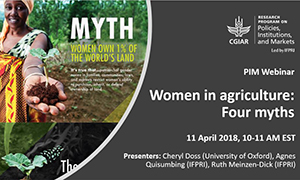
Women in agriculture: Four myths
Organized by CGIAR Research Program on Policies, Institutions, and Markets (PIM)
Sustainable Development Goal (SDG) 5 on gender equality and women’s rights and at least 11 of the 17 SDGs require indicators related to gender dynamics. Despite the need for reliable indicators, stylized facts on women, agriculture, and the environment persist. During this webinar we will focus on four gender myths: Based on the review of […]

